Umberto Eco
description: Italian semiotician, essayist, philosopher, literary critic, and novelist
71 results

Daily Rituals: How Artists Work
by
Mason Currey
Published 22 Apr 2013
Martin Amis: Interview with Francesca Riviere, “The Art of Fiction No. 151: Martin Amis,” Paris Review, Spring 1998, http://www.theparisreview.org/interviews/1156/the-art-of-fiction-no-151-martin-amis. 296. Umberto Eco: Interview with Lila Azam Zanganeh, “The Art of Fiction No. 197: Umberto Eco,” Paris Review, Summer 2008, http://www.theparisreview.org/interviews/5856/the-art-of-fiction-no-197-umberto-eco. 297. Woody Allen: Eric Lax, Conversations with Woody Allen: His Films, the Movies, and Moviemaking (New York: Alfred A. Knopf, 2007). 298. “obsessive thinking”: Ibid., 119. 299. “I’ve found over”: Ibid., 78. 300.
…
Skinner Margaret Mead Jonathan Edwards Samuel Johnson James Boswell Immanuel Kant William James Henry James Franz Kafka James Joyce Marcel Proust Samuel Beckett Igor Stravinsky Erik Satie Pablo Picasso Jean-Paul Sartre T. S. Eliot Dmitry Shostakovich Henry Green Agatha Christie Somerset Maugham Graham Greene Joseph Cornell Sylvia Plath John Cheever Louis Armstrong W. B. Yeats Wallace Stevens Kingsley Amis Martin Amis Umberto Eco Woody Allen David Lynch Maya Angelou George Balanchine Al Hirschfeld Truman Capote Richard Wright H. L. Mencken Philip Larkin Frank Lloyd Wright Louis I. Kahn George Gershwin Joseph Heller James Dickey Nikola Tesla Glenn Gould Louise Bourgeois Chester Himes Flannery O’Connor William Styron Philip Roth P.
…
“Everyone assumes I’m a systematic and nose-to-the-grindstone kind of person,” he said. “But to me it seems like a part-time job, really, in that writing from eleven to one continuously is a very good day’s work. Then you can read or play tennis or snooker. Two hours. I think most writers would be very happy with two hours of concentrated work.” Umberto Eco (b. 1932) The Italian philosopher and novelist—who is perhaps best known for his first novel, The Name of the Rose, published when he was forty-eight years old—claims that he follows no set writing routine. “There is no rule,” he said in 2008. “For me it would be impossible to have a schedule.
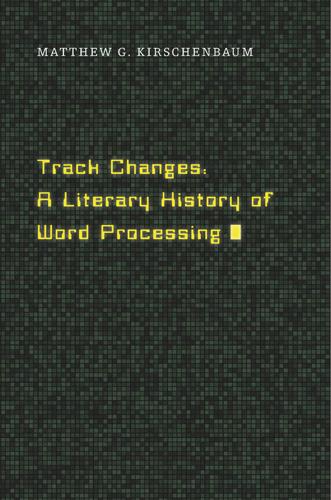
Track Changes
by
Matthew G. Kirschenbaum
Published 1 May 2016
It’s a prose passage whose only real reason for existing is to advance the theme of his essay (“scavenging”), and yet it also reminds us that all of this is what writing really is, these details no different in their way from those that inform the re-creation of the scriptorium so marvelously rendered by Umberto Eco, or from the care and concentration with which a connoisseur restores the delicate moving parts of a vintage typewriter. Of course sometimes the details really do make all the difference. Here is Nicholson Baker (who once made a living as a word processor; that is, a professional operator of them), describing the writing of A Box of Matches (2004), which he did like the novel’s narrator with his journal, early in the morning and in the dark: “I had a couple different laptops because they were not all that dependable, and one of them had a slider bar.
…
“STRANGE EXPERIENCE, UNFAMILIAR MIXTURE OF SPEED AND SLOWDOWN.”42 Terrence McNally, from a file dated June 10, 1988, named NEWLIGHT: “This is the 22nd line. After I finish it and two more, the screen should begin to move upwards and I will only be seeing the last 25 lines.”43 In Foucault’s Pendulum (1989), Umberto Eco begins his plot with an electronic file found on the word processor of one of his protagonists. The machine is kabbalistically named Abulafia (“Abu”), and Eco treats us to several exuberant pages of what is clearly his own authentic celebration of the technology: “If you’ve written a novel with a Confederate hero named Rhett Butler and a fickle girl named Scarlett and then change your mind, all you have to do is punch a key and Abu will global replace the Rhett Butlers to Prince Andreis, the Scarletts to Natashas, Atlanta to Moscow and lo!
…
This deliberately diverse and eclectic set of examples—and there are dozens, if not hundreds more, from the last three decades of publishing—are all instances wherein the mundane conventions of writers’ computers and word processors are invited into the aesthetic or affective space of their work, thereby offering up new reservoirs of images, tropes, and formal devices.8 At first some authors, like Anne Rice, Tom Clancy, and Umberto Eco, were content merely to sneak mentions of their freshly out-of-the-box computers into their prose. In like manner, Don DeLillo, who remained loyal to his typewriter, cast his writer-protagonist Bill Gray in Mao II (1991) as a refusenik; a character who is portrayed as an enthusiastic convert presses him on the question: “I would think for a man who clearly reworks and refines as much as you do, a word processor would be a major blessing.”
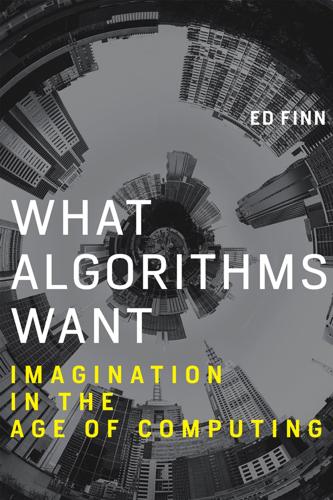
What Algorithms Want: Imagination in the Age of Computing
by
Ed Finn
Published 10 Mar 2017
.: Center for the Study of Language and Information, 1999. Berlinski, David. The Advent of the Algorithm: The Idea That Rules the World. 1st ed. New York: Houghton Mifflin Harcourt, 2000. Beyer, Susanne, and Lothar Gorris. “Interview with Umberto Eco: ‘We Like Lists Because We Don’t Want to Die.’” SPIEGEL ONLINE, November 11, 2009. http://www.spiegel.de/international/zeitgeist/spiegel-interview-with-umberto-eco-we-like-lists-because-we-don-t-want-to-die-a-659577.html. Bleeker, Julian. “Design Fiction: A Short Essay on Design, Science, Fact and Fiction.” Near Future Laboratory, March 2009. http://blog.nearfuturelaboratory.com/2009/03/17/design-fiction-a-short-essay-on-design-science-fact-and-fiction.
…
It is not too much to argue that the transition from more primitive search engines to the algorithmic weighting of PageRank and its imitators has shifted the role of knowledge in society as profoundly as Diderot and d’Alembert did when they debated which ordering schema to use for the Encyclopédie. That transformation is shrouded in the modesty of the list, that simple intellectual construct that the semiotician, philosopher, and literary critic Umberto Eco once identified as “the origin of culture”: What does culture want? To make infinity comprehensible. It also wants to create order—not always, but often. And how, as a human being, does one face infinity? How does one attempt to grasp the incomprehensible? Through lists, through catalogs, through collections in museums and through encyclopedias and dictionaries.12 Both the encyclopédistes and Google would argue that their projects do not create hierarchy but model it—that their knowledge ontologies are simply more effective maps for structures that already existed in culture.
…
Sullivan, “The Recirculation Gap.” 11. Page, Method for node ranking in a linked database. It is interesting to note that Page, Brin, and Google do not own the patent at the heart of Google’s empire; Stanford University does, and licenses it to Google. 12. Beyer and Gorris, “SPIEGEL Interview with Umberto Eco.” 13. Brutlag, “Speed Matters for Google Web Search.” 14. Lanham, The Economics of Attention. 15. “2014 Financial Tables—Investor Relations—Google.” 16. Owens, “Biz Break.” 17. Kim, “How Many Ads Does Google Serve in a Day?” 18. Salmon, “Ad Tech Is Killing the Online Experience” 19. Liu, The Laws of Cool, 181. 20.
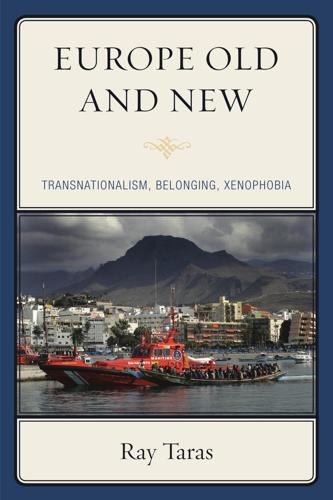
Europe old and new: transnationalism, belonging, xenophobia
by
Ray Taras
Published 15 Dec 2009
These values—not practices—include rationality, justice, and democracy.5 Very typical of European discourse on what makes the continent unique, it is nevertheless hard to see—given twentieth-century European history—how Todorov’s values mark Europe off from other civilizations. In turn, Italian writer Umberto Eco has highlighted the centrality of “the practice of translation.” It is similar to what French philosopher Balibar described as Europe’s tradition-bound praxis of learning cultural and linguistic idioms, of speaking and listening, of teaching and learning, of understanding and making oneself understood.
…
For an introduction to the method, see Véronique Mottier, “Discourse Analysis and the Politics of Identity/Difference,” European Political Science 2, no. 1 (Autumn 2002), 57–60, www.essex.ac.uk/ecpr/publications/eps/onlineissues/ autumn2002/research/mottier.htm. 4. Tony Judt, Postwar: A History of Europe Since 1945 (New York: Penguin, 2005). 5. Tzvetan Todorov, Le nouveau désordre mondial (Paris: Robert Laffont, 2003), 87ff. 6. See Umberto Eco, La recherche de la langue parfaite dans la culture européenne (Paris: Seuil, 1994). Étienne Balibar, “Europe: Vanishing Mediator,” Constellations 3 (2003), 312–38. 7. See European Commission against Racism and Intolerance, “The Use of Racist, Anti-Semitic and Xenophobic Elements in Political Discourse” (high-level panel meeting on the occasion of the International Day for the Elimination of Racial Discrimination, Paris, March 21, 2005), www.coe.int/T/e/human_rights/ecri/4-Publications/. 8.
…
Instead, the EU’s uniqueness is to “have confirmed Europeans in their belief that the domestication of state power demands a mutual limitation of sovereignty, on the global as well as the nation-state level.”37 For the two philosophers, the EU was nothing less than the rejection of the Westphalian order that had consolidated the modern system of nation-states. The article initiated a debate among some of Europe’s best-known thinkers about how to construct a European identity. In contextualizing America’s war in Iraq, Italian novelist Umberto Eco observed that “Europeans have a lot in common—joy and sorrow, pride and shame, traditions to defend and remorse still to process.”38 Citing the motto that “Europe is where there is no death penalty,” Spanish philosopher Fernando Savater emphasized Europe’s indispensable role in a renewed civilizing project.
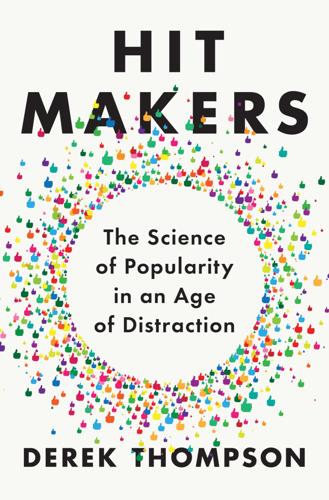
Hit Makers: The Science of Popularity in an Age of Distraction
by
Derek Thompson
Published 7 Feb 2017
It is simple enough to summon adrenaline from the pituitary yet so deeply referent that it invites fans to plumb it for religious significance, like a visual Talmud. Directors like George Lucas are “semiotically nourished authors working for a culture of instinctive semioticians,” the late and great writer Umberto Eco once wrote. That is, Star Wars is not a single movie, nor a lonely cliché floating in ether. It is “movies,” the gathering of hundreds of clichés from several genres, celebrating a reunion in outer space. A story that alludes to just one story is derivative. A story that alludes to nothing in cinema or literature is incomprehensible.
…
Third, it converts happy audiences into high-paying devotees at its amusement parks and stores. Children, ages four through one hundred and twenty, are invited to own the fantasies that Disney has conjured, and the dolls, bed sheets, and costumes they bring into their homes become the most powerful advertisement for the next installment of the fantasy. Umberto Eco called Disneyland “the quintessence of consumer ideology,” because it “not only produces illusion,” but also “stimulates the desire for it.” This is one future of hits: “total merchandising.” Disney is larger, more influential, and more ever present than any company could have been in 1932 when Kay Kamen arrived by train in Los Angeles and proposed to turn Mickey Mouse into a watch.
…
Thanks to those whose work inspired this book, directly and implicitly: Raymond Loewy, Stanley Lieberson, Michael Kaminiski, Chris Taylor, Bill Bryson, Malcolm Gladwell, Jonah Berger, Steven Johnson, Tom Vanderbilt, Robert Gordon, David Suisman, Paul Barber, Elizabeth Margulis, John Seabrook, Charles Duhigg, Daniel Kahneman, Steven Pinker, Oliver Sacks, Michael Wolff, Nate Silver, Dan Ariely, Jonathan Franzen, Conor Sen, Felix Salmon, Matthew Yglesias, Ezra Klein, Chris Martin, Marc Andreessen, and Umberto Eco. Thanks to those whose conversations inspired this book, directly and implicitly: Drew Durbin, Lincoln Quirk, Michael Diamond, Jordan Weissmann, Robbie dePicciotto, Laura Martin, Maria Konnikova, Mark Harris, Spencer Kornhaber, Rececca Rosen, Alexis Madrigal, Bob Cohn, John Gould, Don Peck, James Bennet, Kevin Roose, Gabriel Rossman, Jesse Prinz, Duncan Watts, Anne Messitte, Andrew Golis, Aditya Sood, Nicholas Jackson, Seth Godin, the Diamonds, the Durbins, and Kira Thompson.
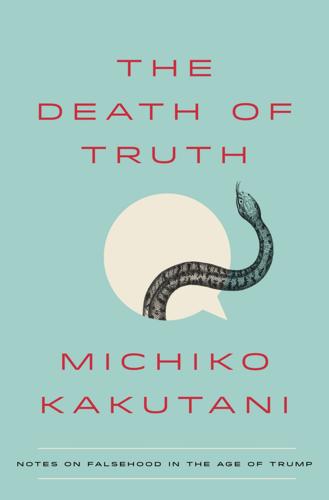
The Death of Truth: Notes on Falsehood in the Age of Trump
by
Michiko Kakutani
Published 17 Jul 2018
The scholar Ruth Ben-Ghiat, a professor of history and Italian studies at New York University who has drawn parallels between Trump’s rise and that of Mussolini, argues that authoritarians typically test “the limits of what the public, press, and political class will tolerate” and that Trump’s incendiary tweets and remarks are efforts “to see how much Americans and the GOP will let him get away with—and when, if ever, they will say ‘enough.’ ” A 1995 essay about Mussolini and “ur-fascism” by the Italian scholar Umberto Eco also sheds light, when read retrospectively, on Trump’s language and use of authoritarian tropes. Many of the features Eco described as being intrinsic to fascism will ominously remind the reader of Trump’s demagoguery: an appeal to nationalism and people’s “fear of difference”; a rejection of science and rational discourse; an invocation of tradition and the past; and a proclivity for equating disagreement with treason.
…
His rants against journalism: Steven Erlanger, “ ‘Fake News,’ Trump’s Obsession, Is Now a Cudgel for Strongmen,” New York Times, Dec. 12, 2017; Anne Applebaum, “The ‘Trump Effect’ Will Help Authoritarians Around the World,” Washington Post, May 4, 2016; “Record Number of Journalists Jailed as Turkey, China, Egypt Pay Scant Price for Repression,” Committee to Protect Journalists, Dec. 13, 2017. “the limits of what the public”: Ruth Ben-Ghiat, “An American Authoritarian,” Atlantic, Aug. 10, 2016. “Mussolini did not have any philosophy”: Umberto Eco, “Ur-fascism,” New York Review of Books, June 22, 1995. “I’m with you”: “Full Text: Donald Trump 2016 RNC Draft Speech Transcript,” Politico, July 21, 2016. 6. FILTERS, SILOS, AND TRIBES “We’re all islands”: Rudyard Kipling, The Light That Failed, in Selected Works of Rudyard Kipling (New York: Collier & Son, 1900), 2:61.
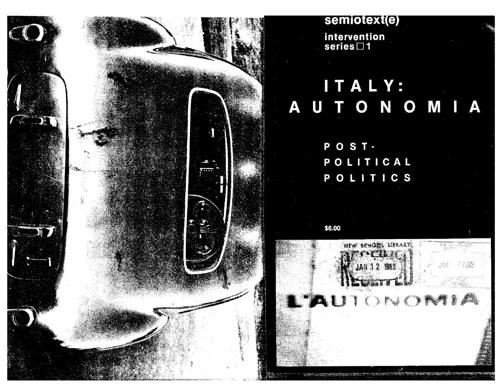
Autonomia: Post-Political Politics 2007
by
Sylvere Lotringer, Christian Marazzi
Published 2 Aug 2005
of truth and of counter-information will find their words turning to dust In their mouths. LLECTUALS, ILITY AND TIMACY )P1A, SSIANISM, EAKDOWN OR RBARISM Let us also examine those whose business It Is to be concerned about guarantees of freedom. The Intellectuals-yes, even they seek to reaffirm their role by seekIng out the "truth", Take a look at what Umberto Eco has to say in the AprH 22 edition of La Repubbl/ca. After having sought the "truth" for half a page, usIng methods worthy of a detective novel, he announces that the boundary between legality and illegality can shift depending on the moment, on the circumstances. Power relationShips, he says. Of course!
…
Indeterminacy requires a relationship with the mass media-only then can the "theater of cruelty" be staged_ The law turns into a combination of emergency and mass media, exists in the form of emergency as it becomes identified with the mass media, is the one in virtue of being the other. Court action operates in the realm of contingencies not only because it is a system of tactics which shifts the boundaries of legality according to individual circumstances-as Umberto Eco asserts-but also because today every boundary is outside the scope of classically codified law, because there is no longer any point in prosecuting "private" beings. What matters is not so much the outcome of the court action, but rather the symbolic trial set in motion through the mass media. And the objective of court action is not so much the maintenance of order, but rather the immediate creation of a collective recognition of the "boundaries"-a recognition that can be created only when disorder prevails.
…
The prosec~tio~ is ~ot ~eeking a single guilty party but rather the Guilty Party- the collective Imagmatlon of the Guilty Party. The deconstruction and construction of texts a~d.lexic~n are func,. tional elements in the establishment of the lexical and linguistic GUilty Party. It IS not accidental that Umberto Eco feels the need to use ambiguities in his article. Putting words on trial is not possible in the courtroom; It is done Instead in the mass media and in the symbOlic process. lelUSIONS Having come this far, we now need to construct an operational .synthesis w~ich is capable of overturning the premises which the power structure Imposed by Its actions of April 7 (as we!!
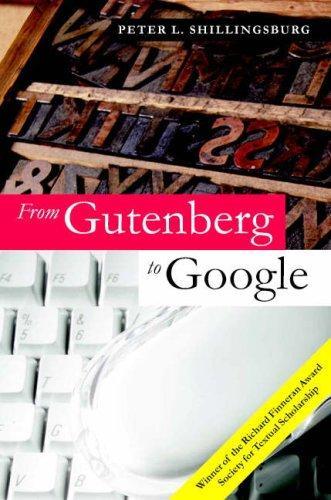
From Gutenberg to Google: electronic representations of literary texts
by
Peter L. Shillingsburg
Published 15 Jan 2006
But both Derrida and Foucault, who are most frequently aligned with interpretive strategies emphasizing the freedom of the reader, have made clear statements to the effect that texts can be misunderstood, that texts are determinate in that they cannot be made to mean just anything, and that, though the boundaries of that determination may be slippery and broad, they are not absent or invisible. A rereading of Wimsatt and Beardsley also shows that, though they were bent on demonstrating that intention was inaccessible, they were committed to the notion that texts had determinate meanings. Umberto Eco, author of the influential The Open Work,15 has complained that readers have been too quick to emphasize the ‘‘open’’ part and not enough constrained by the ‘‘work’’ part of his agenda. His way of insisting that the reader is restricted in what the text can be made to mean, developed clearly in The Limits of Interpretation,16 focuses on the way text itself limits possible readings and exposes misreadings.
…
It seems, however, that though there are things we cannot know, we still suffer the consequences of not knowing them. But certainly ‘‘not knowing’’ whether it is called ignorance or not, consists both of those things you can do something about and those you cannot. The consequences of ignorance about which we can do nothing is not always bad. Umberto Eco in Serendipity speaks of the Force of Truth, which we are familiar with in phrases like ‘‘The truth will out’’; but he offers the counter force: The Force of the False, which he points out has been responsible for a great many history-changing events and conditions. Eco very interestingly points out that Columbus, for example, is often mistakenly thought to have been opposed in his enterprise to reach China by sailing west – opposed by flat earthers convinced that he would fall off the edge.
…
On this subject Francis Bacon’s discourse on the Four Idols that oppose clear thinking is an excellent text. Non-fatal or trivial ignorance consisting of information that even if known would not make a difference. Such information when present and known might be thought of as noise, even when the information is 4 5 Umberto Eco, Serendipities: Language and Lunacy (New York: Harcourt Brace, 1998), p. 7. Attributed to Daniel Boorstin, without a source, by Wisdom Quotes (http://www.wisdomquotes. com/001426.html), and in the following form, also without a source, by Brainy Quotes: ‘‘The greatest obstacle to discovering the shape of the earth, the continents, and the oceans was not ignorance but the illusion of knowledge.’’
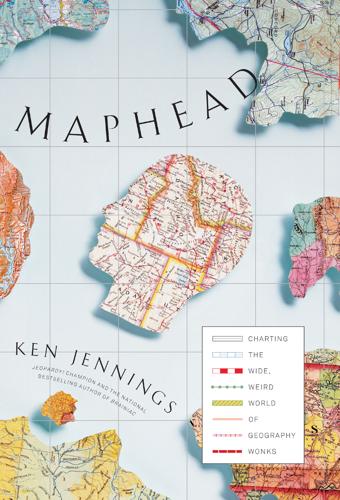
Maphead: Charting the Wide, Weird World of Geography Wonks
by
Ken Jennings
Published 19 Sep 2011
But, he has to admit, this ultimate map has never even been spread out, because the farmers protested that it would block their crops’ sunlight due to its amazing size. Carroll’s notion of a map exactly the size of its territory, in perfect one-to-one detail, inspired Jorge Luis Borges’s short story “On Exactitude in Science” and was further explored by Umberto Eco in a remarkably thorough 1982 essay. Eco straight-facedly enumerated the logistical problems that such a map would entail: the armies of men required to fold it, for example. He ponders making it transparent, to address the objections of Carroll’s farmers, but realizes that any markings on the map would have to be opaque, thereby blocking some local sunlight, which could affect the ecology of the territory beneath.
…
Forbes Smiley III: The best reporting on the Smiley case was done by Kim Martineau in the Hartford Courant and by William Finnegan in “A Theft in the Library: The Case of the Missing Maps,” The New Yorker, Oct. 17, 2005, pp. 64–78. 95 “If you take”: Lillian Thomas, “Valuable Maps Too Easily Stolen from Books, Libraries,” Pittsburgh Post-Gazette, Aug. 16, 2005. 96 Farhad Hakimzadeh: Sandra Laville, “British Library Seeks £300,000 Damages from Book Vandal,” The Guardian, Jan. 17, 2009. 98 Handel enraged him: Philipp Blom, To Have and To Hold: An Intimate History of Collectors and Collecting (New York: Overlook, 2003), p. 82. 98 an amazing hodgepodge: From inventories I found in Blom’s book as well as in Umberto Eco, The Infinity of Lists (New York: Rizzoli, 2009). 99 “some to beautify their halls”: In his preface to The English Euclid. 99 “took great delight”: John Aubrey, Brief Lives (Oxford, England: Clarendon, 1898), p. 329. 99 Samuel Pepys had: Jonathan Potter, Collecting Antique Maps: An Introduction to the History of Cartography (London: Jonathan Potter, 2002), p. 10. 99 by 1560, a quarter: Catherine Delano Smith, “Map Ownership in Sixteenth-Century Cambridge,” Imago Mundi 47, no. 1 (1995), pp. 67–93. 99 Vermeer was a particular map fan: James A.
…
In the same thread, he confesses that when he spends too much time online looking at geo-caches, he appeases his wife by telling her he’s looking at porn. 205 “the worst has happened”: Apsley Cherry-Garrard, The Worst Journey in the World (New York: Carroll & Graf, 1922/1965), p. 525. 207 “I can imagine no more”: Niall Ferguson, Empire: The Rise and Demise of British World Order and the Lessons for Global Power (New York: Basic Books, 2003), p. 200. 207 Serbian geographer Jovan Cvijiō: Vincent Virga, Cartographia: Mapping Civilizations (New York: Little, Brown, 2007), p. 153. 208 “I don’t do anything”: Charles Hoskinson, “GPS Receivers Add Twist to Hide and Seek,” The Washington Times, Nov. 7, 2004. 208 “I started to miss”: Geocache, directed by David Liban, 2007, www .geofilm.net. 208 “Was out enjoying”: “Sugar’s Compost Pile,” cache GC229E8, www.geocaching.com. CHAPTER 11: FRONTIER 212 “Our age today”: Quoted in John Noble Wilford, The Mapmakers (New York: Vintage, 2000), p. 112. 212 “Mein Herr”: Lewis Carroll, Sylvie and Bruno Concluded (London: Macmillan, 1893), p. 169. 212 1982 essay: Umberto Eco, “On the Impossibility of Drawing a Map of the Empire on a Scale of 1 to 1,” in How to Travel with a Salmon and Other Essays (Orlando, Fla.: Harcourt, 1994), p. 95. 216 twenty terabytes or so: Stewart Brand, The Clock of the Long Now: Time and Responsibility (New York: Basic Books, 1999), p. 87. 217 George Armstrong Custer: Jeffry D.
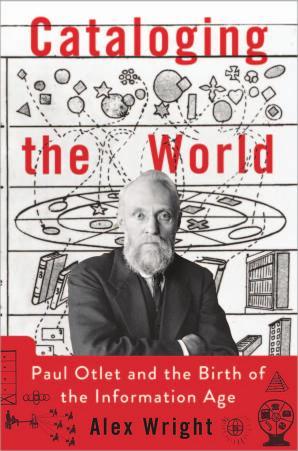
Cataloging the World: Paul Otlet and the Birth of the Information Age
by
Alex Wright
Published 6 Jun 2014
These headings were then linked by a grammar of additional conjugations, suffixes, and other syntactic elements that would allow the speaker to link one thought to another. He also proposed the use of simple signs, like dashes and other symbols, to express differences or opposition between concepts. (an innovation that Otlet too would eventually embrace). The eminent semiotician Umberto Eco describes Wilkins’s scheme as “a system of transcendental particles.”18 For a time, Wilkins’s system took hold in the library of the Royal Society. Bacon’s and Wilkins’s systems provided their intellectual descendants with new theoretical foundations for thinking about how to organize knowledge.
…
“The ideal,” he wrote, “would be to strip each article or each chapter in a book of whatever is a matter of fine language or repetition or padding and to collect separately on cards whatever is new and adds to knowledge.”30 Otlet’s willingness to dismiss the individual author’s voice—mere “fine language”—anticipates the modern search engine, whose algorithmic purpose is to extract individual units of information from a vast collection of texts. Umberto Eco’s distinction between “books to be read” and “books to be consulted”31 seems relevant. The former category consists of novels, poems, essays, and other written works predicated on the bond of sustained attention that unites readers with writers, while the latter comprises the endless volumes of reference works, scientific documents, and other agglomerations of facts that seem well suited to the kinds of brute-force indexing that Otlet advocated.
…
While the ontological authoritarianism of the UDC might make an easy target for satire, Otlet fully recognized the limitations of all classification systems. “All classification is naturally, in part at least, a matter of convention,” he wrote. “Objectively there exist only 221 C ATA L O G I N G T H E WO R L D distinct objects or separate ideas. All links which we establish between objects or ideas bear the mark of subjectivity.”29 Umberto Eco has argued that John Wilkins’s work anticipates the notion of hypertext, insofar as it proposes a framework for drawing connections between related topics by means of symbolic links. Viewed from this lens, says Eco, “many of the system’s contradictions would disappear, and Wilkins could be considered as a pioneer in the idea of a flexible and multiple organization of complex data.”30 So too did Otlet, especially in his later work, express a desire for a more complex, nuanced approach to classification that would balance the top-down imperatives of a central authority with the distributed efforts of local governments, universities, research institutions, and even bookstores.
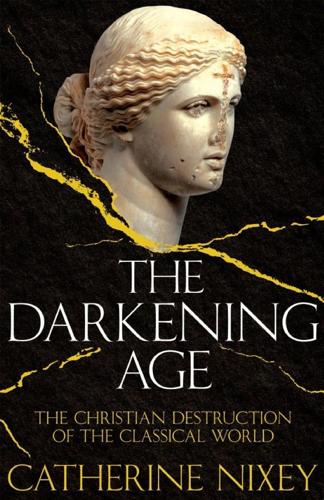
The Darkening Age: The Christian Destruction of the Classical World
by
Catherine Nixey
Published 20 Sep 2017
Once she was dead, they tore her body into pieces and threw what was left of the ‘luminous child of reason’ onto a pyre and burned her.35 CHAPTER TEN TO DRINK FROM THE CUP OF DEVILS ‘We, if wise, shall take from heathen books whatever befits us and is allied to the truth, and shall pass over the rest,’ St Basil, Address, IV Near the beginning of Umberto Eco’s novel The Name of the Rose, an erudite medieval abbot turns to a monk who has just arrived in his monastery in Italy. ‘Monasterium sine libris,’ he declaims, in Latin, naturally, ‘est sicut . . . hortus sine herbis, pratum sine floribus, arbor sine foliis.’ A monastery without books is like a garden without herbs, a meadow without flowers, a tree without leaves.
…
Far from wishing to protect classical texts, many within the Church were violently hostile to their ‘foulness’ and actively wished them destroyed.23 Some ‘obscene’ erotic works were simply not copied out.24 One surviving Byzantine manuscript of Ovid has been scarred by a series of ridiculous redactions – even the word ‘girl’ seems to have been considered too racy to remain.25 In the seventeenth and eighteenth centuries, Jesuits were still censoring and bowdlerizing their editions of the classics.26 Individual abbots, far from Umberto Eco’s avenging intellectual ideal, sometimes censored their own libraries. At some point in the fifteenth century, a note was left in a mutilated manuscript in Vienna. ‘At this point in the book,’ it records, ‘there were thirteen leaves containing works by the apostate Julian; the abbot of the monastery . . . read them and realised that they were dangerous, so he threw them into the sea.’27 Much classical literature was preserved by Christians.
…
Accounts of the attacks vary: Socrates, the most reliable, has her murdered with ‘tiles’ – presumably flayed by the sharp edges of pottery sherds. John of Nikiu (Chronicle, LXXXIV.87) has her dragged through the streets till she died; Damascius (fr. 43) has her eyes gouged out. Hesychius, quoted in Dzielska (1995), 93, has her body scattered across the city. CHAPTER TEN: TO DRINK FROM THE CUP OF DEVILS 1. Umberto Eco (1980), 36. 2. Elderly: Deferrari and McGuire (1934), 365. 3. Basil, Address to Young Men on Reading Greek Literature. 4. Aphrodite: Odyssey, Book 8.256ff; Sophocles, Oedipus the King, 906–10; Dido: Aeneid, IV.129ff. 5. Basil, Address, IV. 6. Jerome, Letter, 22.29. 7. Catullus, 16. 8. Martial, Epigrams, 1.90. 9.
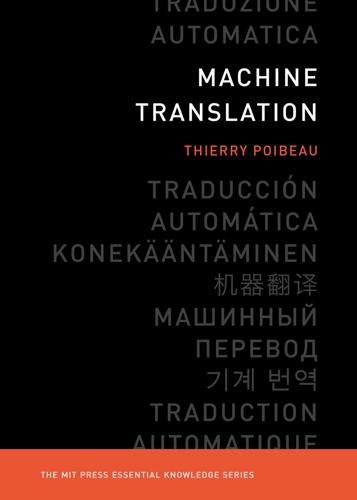
Machine Translation
by
Thierry Poibeau
Published 14 Sep 2017
Chapter 3: A Quick Overview of the Evolution of Machine Translation This chapter presents a quick overview of the field. The reader should thus refer to the general references given at the beginning of this section. Chapter 4: Before the Advent of Computers… The literature on universal languages is huge but the introduction by Umberto Eco is accessible and entertaining. Hutchins’ article on Artsrouni and Trojanskij is the main source in English on these two researchers. Chapter 5: The Beginnings of Machine Translation: The First Rule-Based Systems For this chapter, apart from the writings from Weaver and Bar-Hillel themselves, one can refer to Hutchins’ text on Weaver (“Warren Weaver and the launching of MT: Brief biographical note”) and Y.
…
London: Penguin/Particular Books. Adam Kilgarriff (2006). “Word senses.” In Word Sense Disambiguation: Algorithms and Applications (E. Agirre and P. Edmonds, eds.). Dordrecht: Springer. René Descartes (1991). The Philosophical Writings of Descartes. Volume 3: The Correspondence. Cambridge: Cambridge University Press. Umberto Eco (1997). The Search for the Perfect Language. Oxford: Wiley. John Hutchins (2004). “Two precursors of machine translation: Artsrouni and Trojanskij.” International Journal of Translation 16 (1): 11–31. Philip P. Wiener (ed., 1951). Leibniz Selections. New York: Simon and Schuster. Yehoshua Bar-Hillel (1958 [1961]).
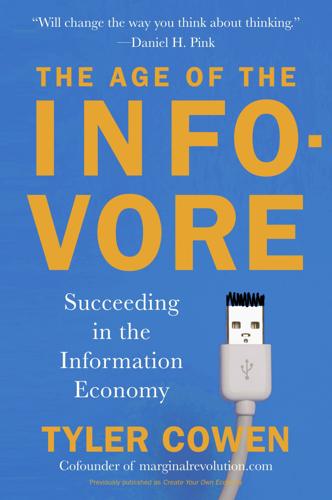
The Age of the Infovore: Succeeding in the Information Economy
by
Tyler Cowen
Published 25 May 2010
In other words he is often able to see the big picture and not just the small details that comprise it. Consistent with this portrait, the ability of autistics to engage in big-picture thinking—albeit in sometimes specialized or different ways—is a theme in recent cognitive research. Some logicians, and also the author and semiotics expert Umberto Eco, have described Holmes’s reasoning as a form of “abduction”—stabbing in the dark to postulate what may be the case—rather than deduction in the formal sense. A big part of Holmes’s appeal is simply how much he is opposed to conventional patterns of thought and the ordinary presuppositions of society.
…
For an argument that characters in Jane Austen novels lie along the autistic spectrum, see Phyllis Ferguson Bottomer, So Odd a Mixture: Along the Autistic Spectrum in Pride and Prejudice (Philadelphia: Jessica Kingsley Publishers, 2007). On mail to Holmes and the popularity of the character, see en.wikipedia.org/wiki/221B_Baker_Street. On the Sherlock Holmes societies, see Russell Miller, The Adventures of Arthur Conan Doyle (London: Harvill Secker, 2008), 4. For discussions of Holmes’s methods of reasoning, see Umberto Eco and Thomas A. Sebeok, eds., The Sign of Three: Dupin, Holmes, Peirce (Bloomington: Indiana University Press, 1983). See also Michael Atkinson, The Secret Marriage of Sherlock Holmes and Other Eccentric Readings (Ann Arbor: University of Michigan Press, 1996), 107. For Doyle’s discussion of the Holmes character within himself, see his autobiography Memories and Adventures (Boston: Little, Brown, and Company, 1924), 94–95, and on Adrian Conan Doyle’s description of his father, see Adrian Conan Doyle, The True Conan Doyle (New York: Coward-McCann, 1946), 18–19, and also Samuel Rosenberg, Naked Is the Best Disguise: The Death and Resurrection of Sherlock Holmes (New York: Penguin Books, 1974), 15–16.
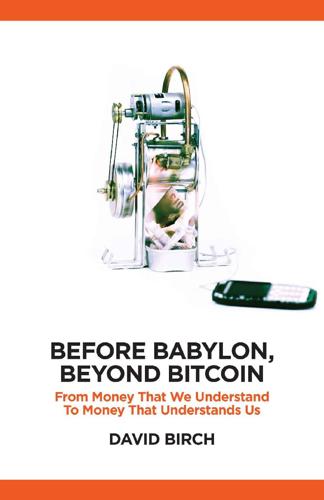
Before Babylon, Beyond Bitcoin: From Money That We Understand to Money That Understands Us (Perspectives)
by
David Birch
Published 14 Jun 2017
As shown in figure 19, it is entirely possible to implement anonymous, pseudonymous and non-anonymous transactions in the same infrastructure, and there are good reasons for wanting to do so. Anonyms, pseudonyms and nyms. We must, though, ask ourselves what we want. To use the post-modern visualization of Umberto Eco, we shouldn’t be creating virtual money, but hypermoney: not an electronic version of money as it is, but an electronic version of money as it should be. I’m not advocating the construction of fantasy money that disconnects from the real world – Eco warns of the dangers of feeling ‘homesick for Disneyland’ (Eco 1986) – but more of an inclusive approach.
…
As I wrote many years ago, people might, for example, want to transact in Manchester United Pounds (they already use Manchester United credit cards and savings accounts) or Microsoft dollars or Islamic e-gold or Cornish e-tin for reasons that have nothing to do with the drivers for the use of traditional means of exchange (World Economic Forum 2016). Social currencies I’d like to end this chapter with some thoughts about how the nature of redesigned money might impact society. To use the post-modern visualization of Umberto Eco mentioned earlier, we shouldn’t be designing virtual cash, but hypercash: not an electronic version of money as it currently is, but an electronic version of money as it should be (Eco 1986). If that money is going to embody the values of the communities that create it, we are moving into new realms.
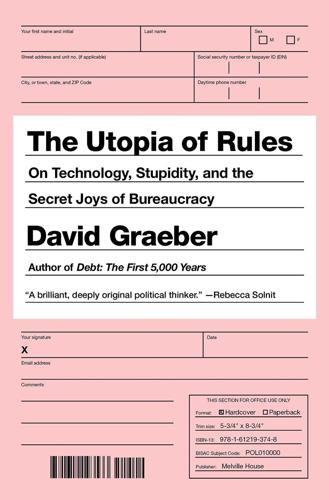
Bureaucracy
by
David Graeber
Published 3 Feb 2015
They thought that we’d actually be doing this kind of thing by now. Not just figuring out more sophisticated ways to simulate it.” That last word, “simulate,” is key. What technological progress we have seen since the seventies has largely been in information technologies—that is, technologies of simulation. They are technologies of what Jean Baudrillard and Umberto Eco used to call the “hyper-real”—the ability to make imitations more realistic than the original. The entire postmodern sensibility, the feeling that we had somehow broken into an unprecedented new historical period where we understood that there was nothing new; that grand historical narratives of progress and liberation were meaningless; that everything now was simulation, ironic repetition, fragmentation and pastiche: all this only makes sense in a technological environment where the only major breakthroughs were ones making it easier to create, transfer, and rearrange virtual projections of things that either already existed, or, we now came to realize, never really would.
…
Comic-book superheroes were originally a mid-century phenomenon and like all mid-century pop culture phenomena, they are essentially Freudian. That is to say, insofar as a work of popular fiction had anything to say about human nature, or human motivations, a certain pop Freudianism is what one would expect. Sometimes this even becomes explicit, as in Forbidden Planet, with its “monsters from the Id.” Usually, it’s just subtext. Umberto Eco once remarked that comic book stories already operate a little bit like dreams; the same basic plot is repeated, obsessive-compulsively, over and over; nothing changes, even as the backdrop for the stories shifts from Great Depression to World War II to postwar prosperity, the heroes—whether Superman, Wonder Woman, the Green Hornet, or Dr.
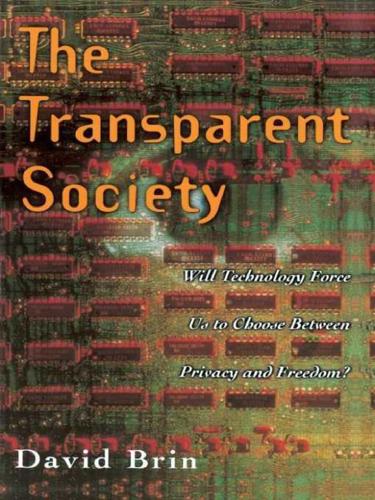
The Transparent Society: Will Technology Force Us to Choose Between Privacy and Freedom?
by
David Brin
Published 1 Jan 1998
One I expect to see is percolation. Its repercussions will spread beyond the arts. Good ideas are not adopted automatieally. They must be driven into practices with courageous impatience. ADMIRAL HYMAN G. RICKOVER In his 1967 essay “Towards a Semiological Guerrilla Warfare,” philosopher and novelist Umberto Eco said that if you give people tools that help them criticize the messages they are receiving, these messages lose their potency as subliminal political levers. One means to achieve this might be through tag commentary, consisting of a few parasitic bytes affixed to any data stream—or simply a Web link—where each reader or recipient may add a brief comment, perhaps a succinct plus or minus, signifying “thumbs up” or “thumbs down.”
…
The rest of us probably wonʼt even hear of the breakthrough. Moreover, it will be in the interest of the mighty to make sure that we never do. To our eyes, the haze will continue. We wonʼt even be aware that new gods have been born. A race of supermen with X-ray eyes, who can see through our beloved veils. Italian novelist and philosopher Umberto Eco expressed this concern eloquently. There is a risk that we might be heading toward an online 1984, in which Orwellʼs “proles” are represented by the passive, televisionfed masses that have no access to this new tool [the Next].... Above them thereʼll be a petite bourgeoisie of passive users, office workers, airline clerks.
…
Yes, there are flashy feuds and “wars,” but the upper classes routinely dropped all such struggles to unite at the first sign of serious competition from below. By acknowledging each otherʼs spheres of influence, oligarchs found it possible to fleece the lower classes like sheep in a field. 275 ... Umberto Eco expressed this concern eloquently ... Lee Marshall, “The World According to Eco,” Wired, March 1997. 276 ... validity of box 2, in principle ... Box 2 is superior only when we are talking about potential threats to constitutional freedom. But there are other troubling questions. What of the “quiet” neighbors who are spouse beaters, child abusers, white-collar thieves, and so on?
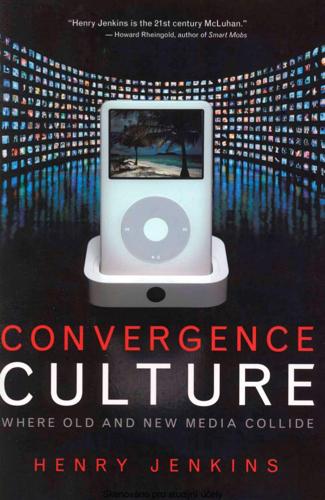
Convergence Culture: Where Old and New Media Collide
by
Henry Jenkins
Published 31 Jul 2006
A l l of them were watching closely i n 2003, w h i c h Newsiveek had called "The Year of The Matrix," to see how audiences were going to respond to the Wachowski brothers' ambitious plans. A n d , like Peter Bagge, they were looking at the faces of people as they exit the theaters, demanding to k n o w if they "got" it. 5 W h a t Is the Matrix? Umberto Eco asks what, beyond being loved, transforms a film such as Casablanca (1942) into a cult artifact. First, he argues, the w o r k must come to us as a "completely furnished w o r l d so that its fans can quote characters and episodes as if they were aspects of the private sectarian w o r l d . " Second, the work must be encyclopedic, containing a rich array of information that can be drilled, practiced, and mastered by devoted consumers.
…
.: Perseus Books, 1997). 4. Franz L i d z , "Rage against the Machines," TV Guide, October 25, 2003, http://www.reevesdrive.com/newsarchive/2003/tvg102503.htm. at 5. D e v i n G o r d o n , "The M a t r i x M a k e r s , " Newsweek, January 6, 2003, accessed http://msnbc.msn.com/id/3067730. 6. els in 7. 8. Umberto Eco, "Casablanca: C u l t M o v i e s and Intertextual Collage," in TravHyperreality ( N e w York: Harcourt Brace, 1986), p. 198. Ibid. Ibid. 9. Ibid., p. 200. 10. Ibid. 11. Ibid., p. 210. 12. Bruce Sterling, " E v e r y Other M o v i e Is the Blue P i l l , " in Karen Haber (ed.), Exploring the Matrix: Visions of the Cyber Present (New York: St.
…
Corporate hybridity: A process whereby powerful media companies absorb elements from other cultural traditions—for example, from other national traditions or from subcultural and avant-garde movements—to head off potential competition for their markets. Skenovano pro studijni ucely Glossary Cult films: According to Umberto Eco, films that provide opportunities for fan exploration and mastery. Cultural activators: M y term for texts that function as catalysts, setting into motion a process of shared meaning-making. Cultural attractors: Pierre Levy's term for the ways that fans and critics cluster around texts they see as rich occasions for meaning-making and evaluation.
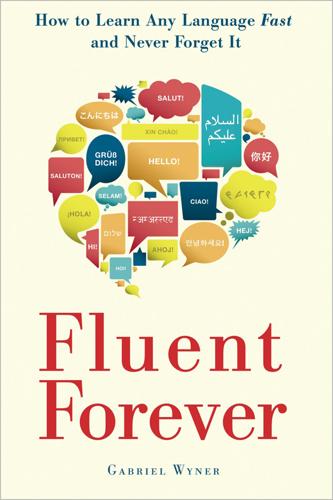
Fluent Forever: How to Learn Any Language Fast and Never Forget It
by
Gabriel Wyner
Published 4 Aug 2014
Most attractively, this system can take what little spare time you have and steadily turn it into a usable foreign language. PRINCIPLE 1: MAKE MEMORIES MORE MEMORABLE Qualsiasi dato diventa importante se è connesso a un altro. Any fact becomes important when it’s connected to another. —Umberto Eco, Foucault’s Pendulum To learn to remember, we must learn about the nature and location of memory. Scientists working in the 1940s and ’50s began their search for memory in the most obvious place: within the cells of our brains—our neurons. They cut out parts of rats’ brains, trying to make them forget a maze, and found that it didn’t matter what part of the brain they chose; the rats never forgot.
…
This will improve your pronunciation, your listening comprehension, your vocabulary, your grammar; in short, it will provide a huge boost to every aspect of your language. LISTENING COMPREHENSION FOR COUCH POTATOES If you want to use television to teach somebody, you must first teach them how to use television. —Umberto Eco Learning to listen can be tricky. Out in the real world, speech can come fast, and even familiar vocabulary can sound foreign in someone else’s mouth. You may learn to comfortably read and write, and even begin thinking in a language, when suddenly you run into a real-life French teenager and realize that you don’t understand a word she’s saying.
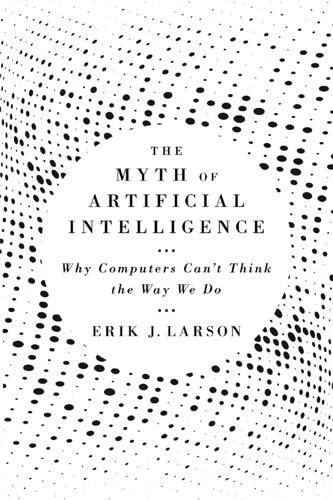
The Myth of Artificial Intelligence: Why Computers Can't Think the Way We Do
by
Erik J. Larson
Published 5 Apr 2021
We don’t yet know how to imbue machines with such knowledge, and even if we figure this out someday, we won’t know how to implement an abductive inference engine to make use of all the knowledge in real time, in the real world—not, that is, without a major conceptual breakthrough in AI. THE SELECTION PROBLEM AS UNDERCODED ABDUCTION (AND MORE) The late novelist, semiotician, and philosopher Umberto Eco, writing in a little-known compilation about abduction and inference, classified types of abductive inference in terms of their inherent novelty (and thus computational difficulty).23 His classification is instructive for our current concern with AI. Hypotheses or overcoded abductions are, paradigmatically, translation cases, where, for instance, man in English means “human adult male.”
…
See John Haugeland, “Understanding Natural Language,” The Journal of Philosophy 76, no. 11 (1979): 623. 18. R. C. Schank, Conceptual Information Processing (New York: Elsevier, 1975). 19. Peirce, “Guessing,” 269. 20. Ibid., 269. 21. Ibid., 269. 22. Daniel Kahneman, Thinking, Fast and Slow (New York: Farrar, Straus, and Giroux, 2013). 23. Umberto Eco and Thomas A. Sebeok, eds., Dupin, Holmes, Peirce: The Sign of Three (Bloomington, IN: Indiana University Press, 1983). Chapter 13: Inference and Language I 1. Andrew Griffin, “Turing Test Breakthrough as Super-Computer Becomes First to Convince Us It’s Human,” Independent, June 8, 2014. 2.
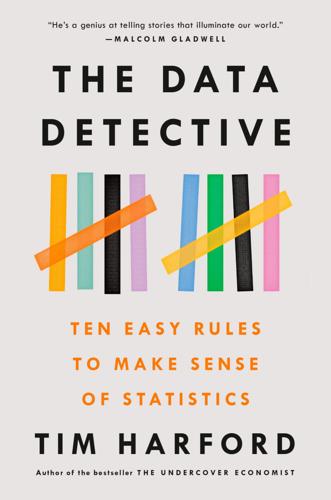
The Data Detective: Ten Easy Rules to Make Sense of Statistics
by
Tim Harford
Published 2 Feb 2021
Loyal FT readers will see that some of the ideas in this book were first explored in my writing for the newspaper. I love the FT and am so glad to be part of it. Thank you to my children, Stella, Africa, and Herbie, just for being you. And to Fran Monks; I’m not even going to try to count the ways I am grateful—they would fill another book. NOTES Introduction: How to Lie with Statistics 1. Umberto Eco, Serendipities: Language and Lunacy (London: Orion, 1998). 2. Robert Matthews, “Storks Deliver Babies (p = 0.008),” Teaching Statistics 22, no. 2 (June 2000), 36–38. Research papers in social science typically say that a relationship is “statistically significant” if p = 0.05, which means that if there was no relationship at all, a pattern at least as clear as the one observed would occur just one in twenty times.
…
“The Cure for Boredom Is Curiosity. There Is No Cure for Curiosity,” Quote Investigator, updated September 26, 2016, https://quoteinvestigator.com/2015/11/01/cure/. 16. “Why is this lying bastard lying to me?” This sentiment courtesy of the renowned British reporter Louis Herren. CREDITS Chapter epigraphs 1: Umberto Eco, Serendipities: Language and Lunacy. London: Orion, 1998. 2: The Empire Strikes Back (1980); also known as Star Wars: Episode V; screenplay by Leigh Brackett and Lawrence Kasdan. 3: Muhammad Yunus, interviewed by Steven Covey, “Stephen Covey Interviews Grameen Bank Founder Muhammad Yunus,” SocialBusinessPedia, last updated November 21, 2016, http://socialbusinesspedia.com/wiki/details/248. 4: Douglas Adams, The Hitchhiker’s Guide to the Galaxy.
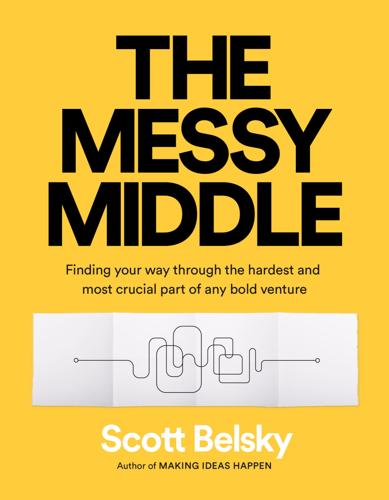
The Messy Middle: Finding Your Way Through the Hardest and Most Crucial Part of Any Bold Venture
by
Scott Belsky
Published 1 Oct 2018
As you approach a major finish in your life, you’ll need to return your mind-set to the “early innings,” you’ll need to summon up your dissatisfactions and curiosities, and you’ll need to suppress the sensation of being done by adding more and more to your list. Italian novelist and philosopher Umberto Eco once suggested that “we like lists because we don’t want to die.” Lists keep us unfinished, and the sensation of having more to do is very much what keeps us learning and striving. Lists keep us alive. Be satisfied with your life, but not with what you’ve made. Strive to be more fulfilled by what you’re doing than what you’ve done.
…
“Read five hundred pages”: Steve Jordon, “Investors Earn Handsome Paychecks by Handling Buffett’s Business,” Omaha World-Herald, April 28, 2013, www.omaha.com/money/investors-earn-handsome-paychecks-by-handling-buffett-s-business/article_bb1fc40f-e6f9-549d-be2f-be1ef4c0da03.html. TO BE DONE IS TO DIE. “we like lists”: Susanne Beyer and Lothar Gorris, “We Like Lists Because We Don’t Want to Die,” Spiegel, November 11, 2009, www.spiegel.de/international/zeitgeist/spiegel-interview-with-umberto-eco-we-like-lists-because-we-don-t-want-to-die-a-659577.html. ABCDEFGHIJKLMNOPQRSTUVWXYZ Index The page numbers in this index refer to the printed version of this book. The link provided will take you to the beginning of that print page. You may need to scroll forward from that location to find the corresponding reference on your e-reader.
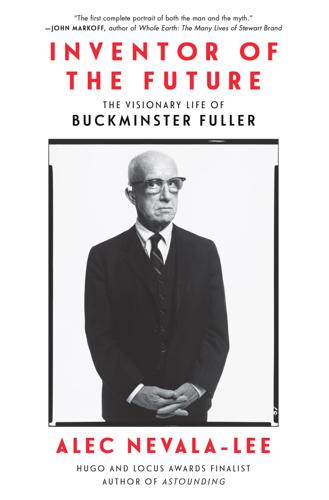
Inventor of the Future: The Visionary Life of Buckminster Fuller
by
Alec Nevala-Lee
Published 1 Aug 2022
“an official acknowledgement”: Andy Warhol and Pat Hackett, POPism: The Warhol Sixties (Orlando, FL: Harvest Book / Harcourt, 1980), 277. Umberto Eco: In The Picture History of Inventions: From Plough to Polaris, trans. Anthony Lawrence (New York: Macmillan, 1963), 258, Eco and G. B. Zorzoli had identified Joseph Paxton’s Crystal Palace “as the main source of inspiration for such modern constructions as Fuller’s famous cupolas.” RBF challenged this association in a hostile review, in which he dismissed Eco as an “aesthete” (“Dissonant Chords on a Grand Piano,” Book Week, February 9, 1964). “The dome was aesthetically”: Umberto Eco, Travels in Hyperreality: Essays, trans. William Weaver (San Diego: Harvest/Harcourt, 1986), 302.
…
Fuller complained afterward that Johns had sold another version for $150,000 but never thought “of offering any of it to me.” Warhol dismissed most of the exhibits as “an official acknowledgement that people would rather see media celebrities than anything else.” Perhaps the most perceptive visitor was the scholar Umberto Eco, who observed, “The dome was aesthetically the strongest element of the pavilion, and it was so full of nuance, so open to different interpretations, that it affected the symbols inside and added depth to their easily identifiable, more superficial qualities.” Warhol put it more emphatically: “The US building at Expo is so beautiful, they should have left it empty.”
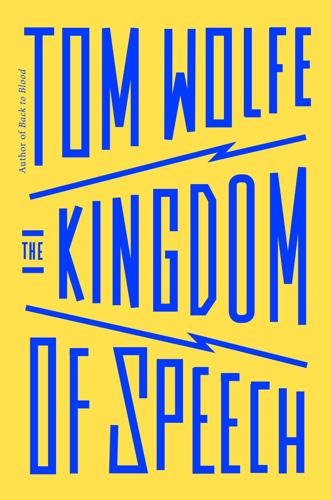
The Kingdom of Speech
by
Tom Wolfe
Published 30 Aug 2016
In 1979 a Sunday New York Times review of Chomsky’s Language and Responsibility (Paul Robinson’s “The Chomsky Problem”) began: “Judged in terms of the power, range, novelty and influence of his thought, Noam Chomsky is arguably the most important intellectual alive today.”114 In 1986, in the Thomson Reuters Arts & Humanities Citation Index, which tracks how often authors are mentioned in other authors’ work, Chomsky came in eighth…in very fast company…the first seven were Marx, Lenin, Shakespeare, Aristotle, the Bible, Plato, and Freud.115 The Prospect–Foreign Policy world thinkers poll for 2005 found Chomsky to be the number one intellectual in the world, with twice the polling numbers of the runner-up (Umberto Eco).116 In the New Statesman’s 2006 “Heroes of Our Time” listings—the heroes being mainly fighters for justice and civil rights who had been imprisoned for the Cause, such as Nelson Mandela, the Nobel Peace Prize winner (1993) who had served twenty-seven years of a life sentence for plotting the violent overthrow of the South African government, and another Nobel winner, Aung San Suu Kyi, who was under house arrest in Myanmar at the time—Chomsky came in seventh.117 His arrests were of the token variety that seldom caused the miscreant to miss dinner out.
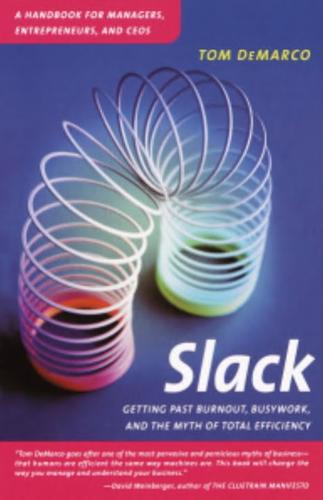
Slack: Getting Past Burnout, Busywork, and the Myth of Total Efficiency
by
Tom Demarco
Published 15 Nov 2001
To rise above them, we need to face up to an important truth: Management is hard, and not because there is so much work to do (an overworked manager is almost certainly doing work he/she shouldn’t be doing). Management is hard because the skills are inherently difficult to master. Your mastery of them will affect your organization more than anything going on under you. Running away from the challenge doesn’t help. 13 Culture of Fear IN THE NAME OF THE ROSE, Umberto Eco’s captivating mystery story set in the fourteenth century, monks have been turning up murdered in a monastery known for its huge archival library. A visiting scholar, William of Baskerville, has heard a rumor that there is a copy in the library (the only surviving copy on earth) of Aristotle’s Treatise on Comedy.
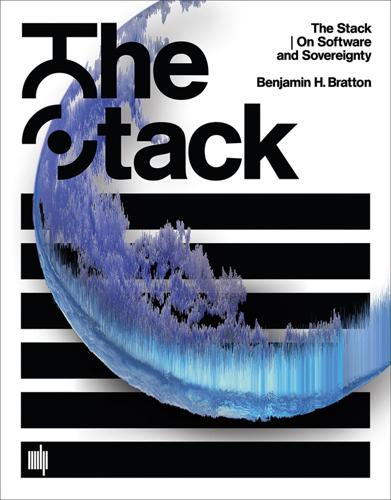
The Stack: On Software and Sovereignty
by
Benjamin H. Bratton
Published 19 Feb 2016
The architecture of their brands and their software platforms is not only representative of geopolitical interests; each one in its way is a geopolitical model. To be clear, the more relevant questions for us are less how they might extend US superjurisdiction than how each constitutes different and incomplete options for what emerges around it and in spite of it. They perform this role both as privately held corporations and also, as Umberto Eco pointed out years before (1994) in his prescient satirical essay, “The Holy War: Mac vs. DOS,” even as exemplars of alternative techno-theological programs.46 In sequence, we'll examine the models posed by Facebook, Apple, Amazon, and perhaps the most significant for this stage of the argument, Google.47 29.
…
Consider how Iraqi insurgent groups managed to tap into coalition surveillance and communication satellites as well as aerial drone camera feeds using the Russian off-the-shelf software, SkyGrabber, which sells for $26. See Charles Arthur, “SkyGrabber: The $26 Software Used by Insurgents to Hack into US Drones,” Guardian, December 17, 2009, http://www.theguardian.com/technology/2009/dec/17/skygrabber-software-drones-hacked. 46. Umberto Eco, “The Holy War: Mac vs. DOS, La bustina di Minerva,” L’Espresso, September 30, 1994. See also http://cliffarnold.com/macvdos.pdf. 47. There are certainly other Cloud platforms to consider as possible Cloud Polis models, and certainly not nearly all of them are US megaplatforms. A word on Twitter, which I view as too one-dimensional to compare to the others’ more grandiose geopolitical potentials: It may be better compared to a critical insect species in a larger ecology, moving memes from place to place, like bees pollinating flowers.
…
But once again, one truly hopes that the poetry and metaphor of the monotheistic cognitive cultures that they reference can withstand the unambiguous literalism that AR might afford them and the violence that absolute explication demands of adherents. Interfacial regimes such as these are more than visual technologies; they are indeed cosmograms (Umberto Eco's 1984 essay arguing that Mac is Catholic and DOS is Protestant isn't obsolete; it's prophetic).61 As the spawn of logistical aesthetics, these regimes are not only a programmatic diagram of how a particular machine network works but, in aggregate, of how the world works and what its proper configuration is or should be, and what is to be done about it, right here and now, by you.
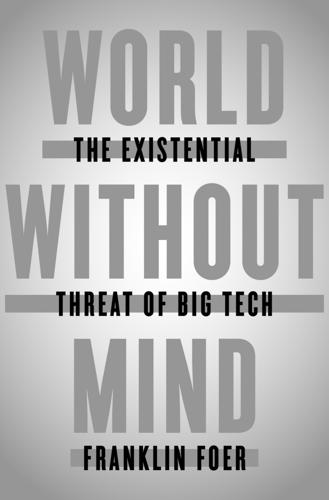
World Without Mind: The Existential Threat of Big Tech
by
Franklin Foer
Published 31 Aug 2017
“You know I’m an engineer”: Ben Thompson, “Why Twitter Must Be Saved,” Stratechery, November 8, 2016. “When one compares . . . one’s own small talents with those of a Leibniz”: Matthew Stewart, The Courtier and the Heretic (W. W. Norton, 2006), 12. If ten can’t be divided by six, and six can’t be divided by ten: Umberto Eco, The Search for the Perfect Language (Blackwell, 1995), 274. Sadly, whenever he tested the machine for an audience: Stewart, 141. “Once this has been done, if ever further controversies should arise”: Eco, 281. He explained how automation of white-collar jobs: James Gleick, The Information (Pantheon, 2011), 93.
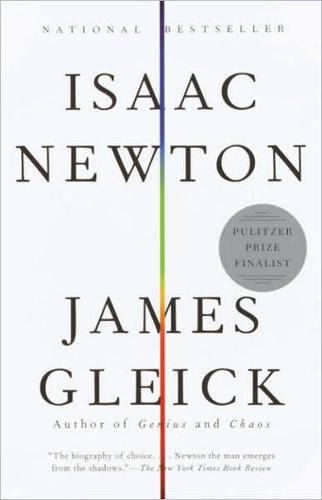
Isaac Newton
by
James Gleick
Published 1 Jan 2003
Newton on Matter and Activity. Notre Dame, Ind.: University of Notre Dame Press, 1978. Meli, Domenico Bertoloni. Equivalence and Priority: Newton versus Leibniz. Oxford: Clarendon Press, 1993. Merton, Robert K. On the Shoulders of Giants: A Shandean Postscript. The Post-Italianate Edition. Foreword by Umberto Eco. Afterword by Denis Donoghue. Chicago: University of Chicago Press, 1993. ———. “Priorities in Scientific Discovery: A Chapter in the Sociology of Science.” American Sociological Review 22 (December 1957): 635–59. ———. Science, Technology, & Society in Seventeenth Century England. New York: Howard Fertig, 1970.
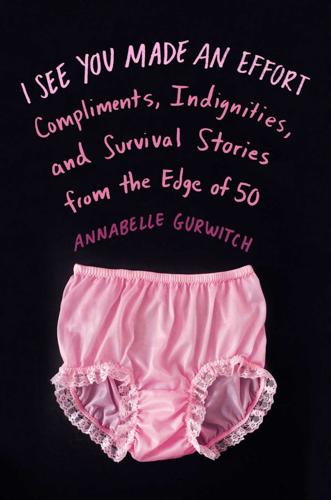
I See You Made an Effort: Compliments, Indignities, and Survival Stories From the Edge of 50
by
Annabelle Gurwitch
Published 6 Mar 2014
“We’re taking a stand for love in an age that’s increasingly cynical. We’re casting our ‘love spells.’ You can’t manifest something unless you declare what you want.” I’m manifesting a lot of eye-rolling. “Do it, Green Boots,” Coach orders me. I feel like a low-rent romance novelist, but I compose a scenario that involves Umberto Eco, Paris and Pinot Noir. I call my composition “Semiotic and Erotic.” After I read it aloud, I announce, “I’ve stopped devoting energy to my marriage.” I’m first in the group to cry. I am, it turns out, the exact woman the Love Coach described to me on the phone. Each woman reads what she’s written and aside from the fact that the majority of the scenes take place in Paris or on a beach and involve consuming wine or brunch or both, they are all sincerely heartfelt.
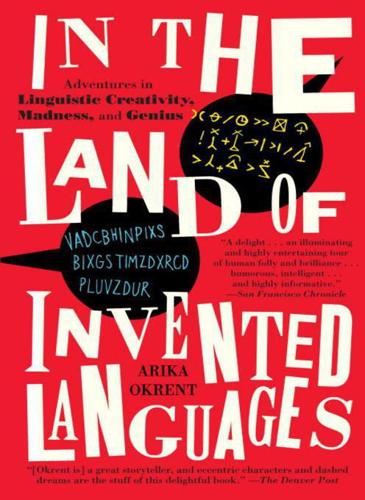
In the Land of Invented Languages: Adventures in Linguistic Creativity, Madness, and Genius
by
Arika Okrent
Published 1 Jan 2009
In this regard Shirley McNaughton, Bob LeChevalier, and Andrea Patten have provided me with indispensable help. But, of course, I have also relied heavily on the work of others. What follows is a list of some of the secondary sources I have consulted and some suggestions for further reading. General books about invented languages: Umberto Eco, The Search for the Perfect Language (Blackwell, 1995). Andrew Large, The Artificial Language Movement (Blackwell, 1985). Marina Yaguello, Lunatic Lovers of Language: Imaginary Languages and Their Inventors (Athlone Press, 1991). NINE HUNDRED LANGUAGES, NINE HUNDRED YEARS For more about Hildegard von Bingen, see: Sarah L.
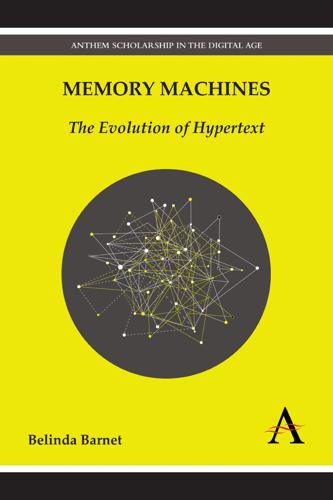
Memory Machines: The Evolution of Hypertext
by
Belinda Barnet
Published 14 Jul 2013
‘Poem Descending a Staircase: Hypertext and the Simultaneity of Experience’. In Hypermedia and Literary Studies, edited by Paul Delaney and George Landow, 143–152. Cambridge, MA: MIT Press. Dutta, Anindita. 1995. ‘The Paradox of Truth, the Truth of Entropy’. Online: http://www. pynchon.pomona.edu/entropy/paradox.html (accessed March 2012). Umberto Eco. 1996. ‘The Future of the Book’. The Modern Word. Online: http://www. themodernword.com/eco/eco_future_of_book.html (accessed April 2013). Edwards, Paul N. 1997. The Closed World: Computers and the Politics of Discourse in Cold War America. Cambridge, MA: MIT Press. Eldredge, Niles. 1996. ‘A Battle of Words’.
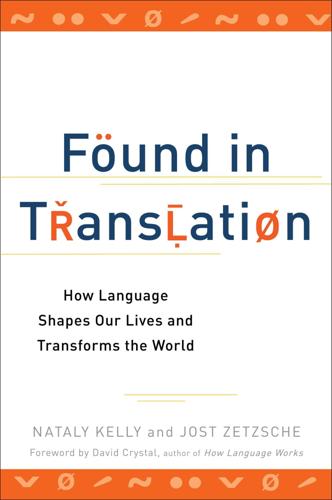
Found in Translation: How Language Shapes Our Lives and Transforms the World
by
Nataly Kelly
and
Jost Zetzsche
Published 1 Oct 2012
Robert Lochner, who helped Kennedy write the speech, was a chief German interpreter during World War II. Kennedy had also practiced the speech in front of many Germans, including Willy Brandt, the mayor of Berlin. In this case, there was no mistranslation.28 506 Language Pairs for the Price of a Cup of Coffee As the writer Umberto Eco observed, “The language of Europe is translation.” Indeed, there are quite a few languages spoken by the 736 members of the European Parliament who serve the European Union (EU). How do they communicate? Through interpreters, of course. The EU is the largest transnational democratic electorate in the world, and it handles a mind-boggling number of languages and assignments.
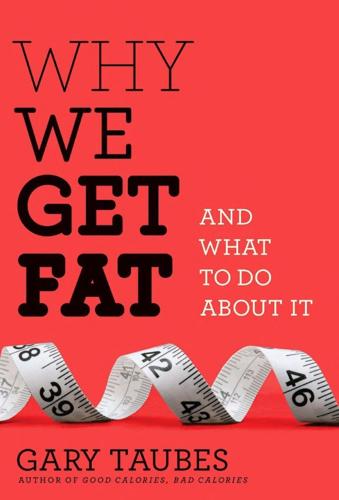
Why We Get Fat and What to Do About It
by
Gary Taubes
Published 28 Dec 2010
By 1989, the same year Pi-Sunyer gave his pessimistic assessment of the actual evidence, Newsweek declared exercise an “essential” element of any weight-loss program. Now, according to the Times, on those infrequent occasions “when exercise isn’t enough” to induce sufficient weight loss, “you must also make sure you don’t overeat.” Why the obesity researchers and public-health authorities eventually came to believe this story is a different question. Umberto Eco offered a likely answer in his novel Foucault’s Pendulum. “I believe that you can reach the point,” Eco wrote, “where there is no longer any difference between developing the habit of pretending to believe and developing the habit of believing.” From the late 1970s onward, the primary factor fueling the belief that we can maintain or lose weight through exercise seemed to be the researchers’ desire to believe it was true and their reluctance to acknowledge otherwise publicly.
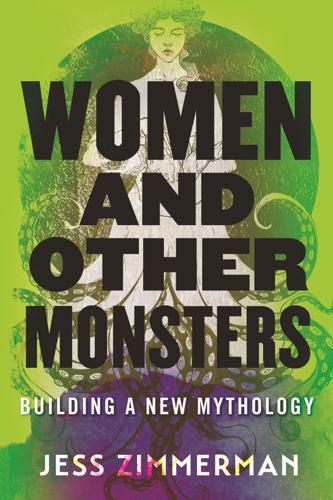
Women and Other Monsters: Building a New Mythology
by
Jess Zimmerman
Published 9 Mar 2021
Thousands of stories to tell in dozens of languages: the languages of strong features or weak chins, the languages of garish makeup and weird haircuts and startling clothes, fat and bony and hairy languages, the languages of any kind of beauty that’s not white. Nose languages, eyebrow languages, piercing and tattoo languages, languages of blemish and birthmark and scar. When you give up trying to declare yourself acceptable, there are so many new things to say. “Beauty is in some way boring,” the writer and scholar Umberto Eco said in a 2007 lecture on the history of ugliness. “Even if its concept changes through the ages, nevertheless, a beautiful object must always follow certain rules. So to speak: a beautiful nose shouldn’t be longer than that or shorter than that. On the contrary, an ugly nose can be as long as the one of Pinocchio, as big as the one of an elephant, or like the beak of an eagle.
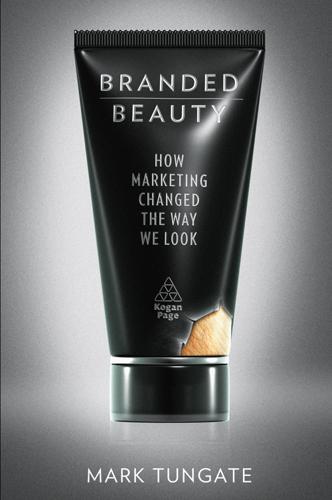
Branded Beauty
by
Mark Tungate
Published 11 Feb 2012
Pythagoras expanded on this theory to suggest that harmony in all things was governed by symmetry. Writes Armstrong: ‘The Pythagorean term for beauty was “cosmos” – a meaning still resonant in the aims of cosmetic surgery and the application of lipstick.’ Another trait that appears not to have changed is our attraction to light and colour. Umberto Eco, in his (2004) book On Beauty, observes that, while the medieval period is often referred to as ‘the Dark Ages’, it was in fact filled with colour and clarity, from illuminated manuscripts to ‘clothing dyed with the most precious colours, like purple’. There was also the little matter of status.
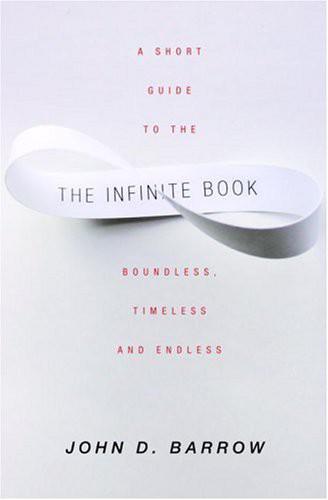
The Infinite Book: A Short Guide to the Boundless, Timeless and Endless
by
John D. Barrow
Published 1 Aug 2005
The first is The Library of Babel, an infinite honeycomb of rooms containing an endless array of all possible books. Borges’s library has many recognisable features – it is infinite in extent, it is infinite in age, and it follows the specification for an infinite universe made by Nicholas of Cusa: that its centre is everywhere and its circumference is nowhere. The mysterious library that Umberto Eco evoked in The Name of the Rose seems like a finite extract from Borges’s great Library of Babel: ‘The universe (which others call the Library) is composed of an indefinite, perhaps infinite number of hexagonal galleries . . . From any hexagon one can see the floors above and below – one after another, endlessly . . .
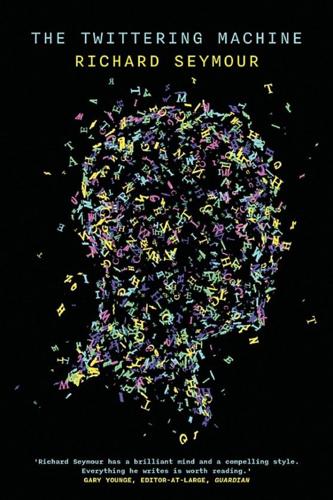
The Twittering Machine
by
Richard Seymour
Published 20 Aug 2019
And finally, if we are all going to be writers, it is a story that asks the minimal utopian question: what else could we be doing with writing, if not this? CHAPTER ONE WE ARE ALL CONNECTED There is in our future a TV or Internet populism, in which the emotional response of a selected group of citizens can be presented and accepted as the Voice of the People. Umberto Eco, ‘Ur-Fascism’ In 1922, the surrealist Paul Klee invented the Twittering Machine. In the painting, a row of stick-figure birds clutches an axle, turned by a crank. Below the device where the voices squawk discordantly is a reddened pit. The Museum of Modern Art explains: ‘the birds function as bait to lure victims to the pit over which the machine hovers.’1 Somehow, the holy music of birdsong has been mechanized, deployed as a lure, for the purpose of human damnation.
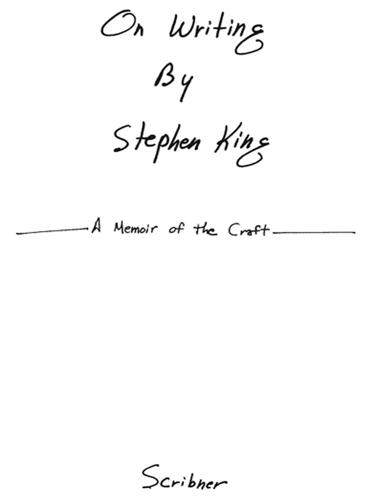
On Writing: A Memoir of the Craft
by
Stephen King
Published 1 Jan 2000
I guess the underlying thought is that people have so many things to do today, and are so easily distracted from the printed word, that you’ll lose them unless you become a kind of short-order cook, serving up sizzling burgers, fries, and eggs over easy just as fast as you can. Like so many unexamined beliefs in the publishing business, this idea is largely bullshit … which is why, when books like Umberto Eco’s The Name of the Rose or Charles Frazier’s Cold Mountain suddenly break out of the pack and climb the best-seller lists, publishers and editors are astonished. I suspect that most of them ascribe these books’ unexpected success to unpredictable and deplorable lapses into good taste on the part of the reading public.
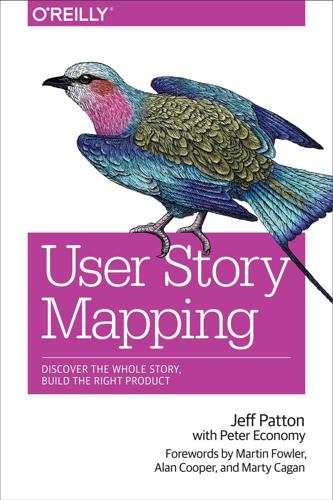
User Story Mapping: Discover the Whole Story, Build the Right Product
by
Jeff Patton
and
Peter Economy
Published 14 Apr 2014
It seems hard to take credit for any of the ideas in this book since I know most were borrowed or simply stolen from others. Whenever I do have what I believe to be an original idea, I’m reminded of cryptomnesia. It’s a fun word that applies to the accidental plagiarism that reputable people like George Harrison and Umberto Eco are guilty of. Cryptomnesia occurs when a forgotten memory returns without it being recognized as a memory. The crytomnesiac believes the great idea they’ve just come up with is new and original, and not the forgotten memory of something they’ve read, heard, or otherwise experienced. The people I’m thanking below are quite likely many of the people I’ve unintentionally stolen from.
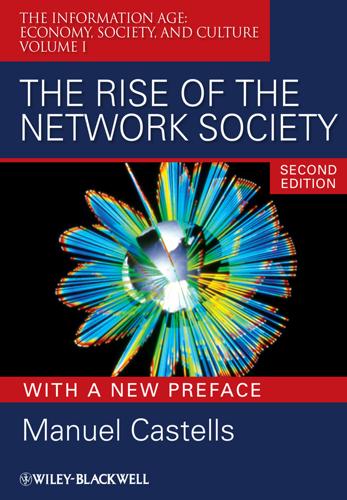
The Rise of the Network Society
by
Manuel Castells
Published 31 Aug 1996
In the words of Croteau and Haynes, “there are three basic ways in which media audiences have been seen as active: through individual interpretation of media products, through collective interpretation of media, and through collective political action.”36 And they go on to provide a wealth of data and illustrations to support their claim of the relative autonomy of the audience vis à vis messages received from the media. Indeed, this is a well-established tradition in media studies. Thus, Umberto Eco provided an insightful perspective to interpret media effects in his 1977 seminal paper titled “Does the Audience have Bad Effects on Television?” As Eco wrote: There exist, depending on sociocultural circumstances, a variety of codes, or rather of rules of competence and interpretation. The message has a signifying form that can be filled with different meanings… So the suspicion grew that the sender organized the televisual image on the basis of his own codes, which coincided with those of the dominant ideology, while the addressees filled it with “aberrant” meanings according to their particular cultural codes.37 The consequence of this analysis is that: “One thing we do know is that there doesn’t exist a Mass Culture in the sense imagined by the apocalyptic critics of mass communications because this model competes with others (constituted by historical vestiges, class culture, aspects of high culture transmitted through education etc.).”38 While historians and empirical researchers of the media would find this statement pure common sense, in fact, taking it seriously, as I do, it decisively undermines a fundamental aspect of critical social theory from Marcuse to Habermas.
…
Dyson, Esther (1998) Release 2.1: A Design for Living in the Digital Age, London: Penguin. Ebel, K. and Ulrich, E. (1987) Social and Labour Effects of CAD/CAM, Geneva: International Labour Organization. Eco, Umberto (1977) “Dalla periferia dell’impero”, cited in the English translation as “Does the audience have bad effects on television?”, in Umberto Eco, Apocalypse Postponed, Bloomington: Indiana University Press, 1994, pp. 87–102. Edquist, Charles and Jacobsson, Stefan (1989) Flexible Automation: the Global Diffusion of New Technologies in the Engineering Industry, Oxford: Blackwell. Egan, Ted (1995) “The development and location patterns of software industry in the US”, unpublished PhD dissertation, Berkeley, CA: University of California.
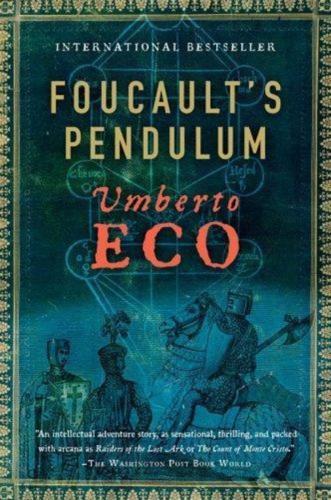
Foucault's Pendulum
by
Umberto Eco
Published 15 Dec 1990
Foucalt’s Pendulum Umberto Eco Translated from the Italian by William Weaver TABLE OF CONTENTS KETER 1 2 HOKHMAH 3 4 5 6 BINAH 7 8 9 10 11 12 13 14 15 16 17 18 19 20 21 22 HESED 23 24 25 26 27 28 29 30 31 32 33 GEVURAH 34 35 36 37 38 39 40 41 42 43 44 45 46 47 48 49 50 51 52 53 54 55 56 57 58 59 60 61 62 63 TIFERET 64 65 66 67 68 69 70 71 72 73 74 75 76 77 78 79 80 81 82 83 84 85 86 87 88 89 90 91 92 93 94 95 96 97 98 99 100 101 102 103 104 105 106 NEZAH 107 108 109 110 111 HOD 112 113 114 115 116 117 YESOD 118 119 MALKHUT 120 Only for you, children of doctrine and learning, have we written this work.
…
It makes no difference whether I write or not. They will look for other meanings, even in my silence. That’s how They are. Blind to revelation. Malkhut is Malkhut, and that’s that. But try telling Them. They of little faith. So I might as well stay here, wait, and look at the hill. It’s so beautiful. About the Author Umberto Eco was born in 1932 in Alessandria, Italy. He is professor of semiotics at the University of Bologna, a philosopher, historian, literary critic, and aesthetician. The subjects of his scholarly investigation range from St. Thomas Aquinas to James Joyce to Superman. He lives in Milan.
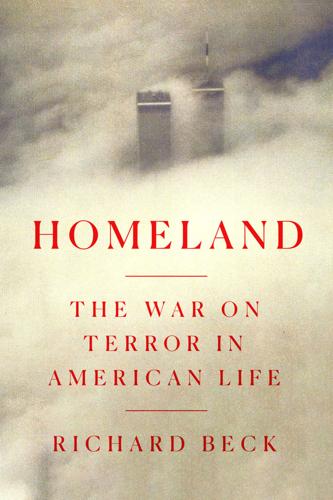
Homeland: The War on Terror in American Life
by
Richard Beck
Published 2 Sep 2024
In these stories, violence is the only remedy for humiliation, fear, and trauma, and it will be administered in whatever quantities are required to wipe the enemy off the face of the earth. As afternoon turned to evening on September 11, the ghosts of these myth figures floated among the clouds of smoke and ash that emanated from lower Manhattan. * * * • • • The Italian writer and academic Umberto Eco once wrote an essay about Casablanca. He’d seen the film screened for students at American universities, and he’d watched the students “greet each scene and canonical line of dialogue (‘Round up the usual suspects,’ ‘Was that cannon fire, or is it my heart pounding?’—or even every time that Bogey says ‘kid’) with ovations usually reserved for football games.”
…
BACK TO NOTE REFERENCE 55 Slotkin, Regeneration Through Violence, 441. BACK TO NOTE REFERENCE 56 James Fenimore Cooper, Leatherstocking Tales, vols. 1–2 (New York: Library of America, 1985). BACK TO NOTE REFERENCE 57 Slotkin, Regeneration Through Violence, 300. BACK TO NOTE REFERENCE 58 Umberto Eco, “Casablanca, or, the Cliches Are Having a Ball,” in Signs of Life in the U.S.A.: Readings on Popular Culture for Writers, ed. Sonia Maasik and Jack Solomon (Boston: Bedford Books, 1994), 260–64. BACK TO NOTE REFERENCE 59 “ABC Sept. 11, 2001, 6:14 pm–6:56 pm,” September 11 Television Archive, Internet Archive, archive.org/details/abc200109111814-1856.
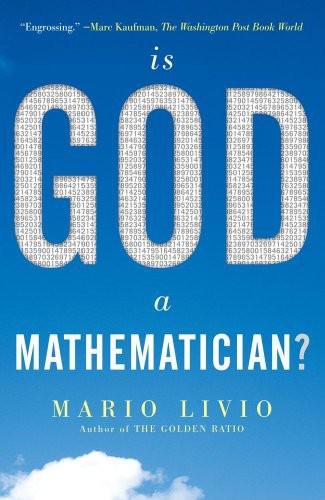
Is God a Mathematician?
by
Mario Livio
Published 6 Jan 2009
Very little was known about this method and about Archimedes’ thought process in general until the twentieth century. His concise style gave away very few clues. Then, in 1906, a dramatic discovery opened a window into the mind of this genius. The story of this discovery reads so much like one of the historical mystery novels by the Italian author and philosopher Umberto Eco that I feel compelled to take a brief detour to tell it. The Archimedes Palimpsest Sometime in the tenth century, an anonymous scribe in Constantinople (today’s Istanbul) copied three important works of Archimedes: The Method, Stomachion, and On Floating Bodies. This was probably part of a general interest in Greek mathematics that was largely sparked by the ninth century mathematician Leo the Geometer.
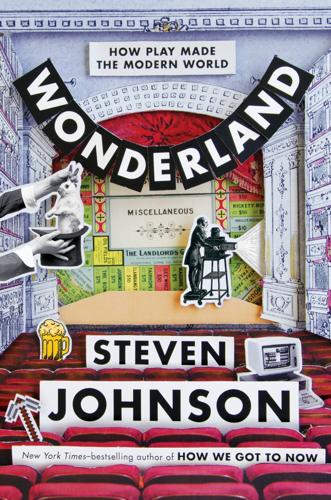
Wonderland: How Play Made the Modern World
by
Steven Johnson
Published 15 Nov 2016
The theme-park industry today is one of the most lucrative entertainment businesses in the world. (In the United States alone, amusement parks generate more than $50 billion in economic activity each year.) But these fantasylands turned out to have philosophical implications as well. A rich tradition of continental philosophy emerged in the 1970s—most famously Umberto Eco’s Travels in Hyperreality and Jean Baudrillard’s Simulacra and Simulation—decrying the illusory artifice of modern culture, all the theme restaurants and megamalls and old downtowns converted into spectacles of consumption. “Disneyland is presented as imaginary in order to make us believe that the rest is real,” Baudrillard famously announced in Simulacra and Simulation, “whereas all of Los Angeles and the America that surrounds it are no longer real, but belong to the hyperreal order and to the order of simulation.”
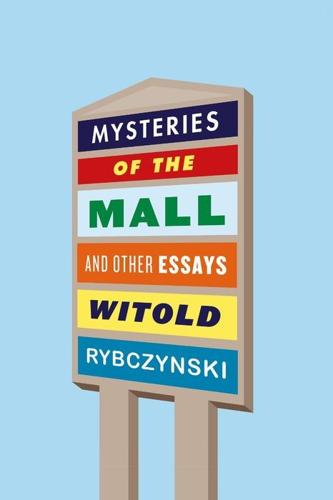
Mysteries of the Mall: And Other Essays
by
Witold Rybczynski
Published 7 Sep 2015
She maintains that she only writes about buildings she has personally visited but includes an extended discussion of the new Disney community of Celebration that appears to be based entirely on promotional brochures. Huxtable’s polemic leans heavily on the writing of European intellectuals such as Umberto Eco, André Corboz, and Jean Baudrillard. They provide a shaky support, consisting chiefly of academic jargon: “surrogate experience,” “artificial environments,” and “simulacra.” Such pseudoscientific terms are intended to lend credence to a thesis that is, at its core, unconvincing. It presumes that the public—except you, wise reader—cannot tell the difference between what is real and what is not, that we live in a sort of perpetual haze.
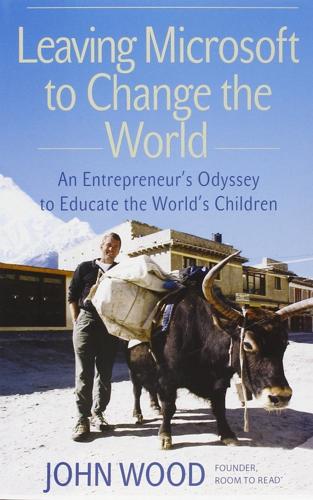
Leaving Microsoft to Change the World: An Entrepreneur's Odyssey to Educate the World's Children
by
John Wood
Published 28 Aug 2006
The school had so few that the teachers did not want to risk the children damaging them. I wondered how a book could impart knowledge if it was locked up, but kept that thought to myself. My heart sank as the school’s treasure trove was revealed. A Danielle Steel romance with a couple locked in passionate and semi-clothed embrace on the front cover. A thick Umberto Eco novel, written in Italian. The Lonely Planet Guide to Mongolia. And what children’s library would be complete without Finnegans Wake? The books appeared to be backpacker castoffs that would be inaccessible (both physically and intellectually) to the young students. I asked about the school’s enrollment and learned there were 450 students.
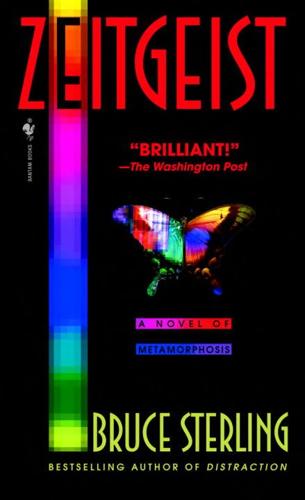
Zeitgeist
by
Bruce Sterling
Published 1 Nov 2000
“Then, no, it isn’t always this horrible.” Starlitz turned back with a grunt. “ ‘Horrible’ would be too simple. The world isn’t simple or pure. It isn’t any one thing. The real world, the true reality … it literally isn’t what it is. ‘A is not A,’ right? In the real world A can’t even fuckin’ bother to be A. You ever read any Umberto Eco?” Viktor stirred restlessly. “You mean those big, fat popular novels? No, I can’t abide that sort of thing.” “How about Deleuze and Guattari? Derrida? Foucault? You ever read any Adorno?” “Adorno was a fucking Marxist,” Viktor said wearily. “But of course I’ve read Derrida. How could one not read Derrida?
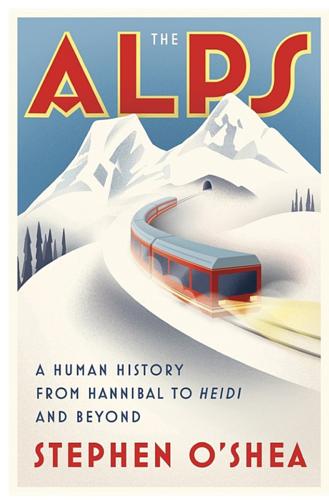
The Alps: A Human History From Hannibal to Heidi and Beyond
by
Stephen O'Shea
Published 21 Feb 2017
That monk, Gall, came to the area in the seventh century seeking a place to hide out as a hermit. He was accompanied by Colombanus, another Irishman, who would leave his companion behind, cross the Alps, and establish, south of Milan, the venerable monastery in Bobbio, one of the templates for Umberto Eco’s fictional library-monastery in The Name of the Rose. Gall decided to stay in what would become Switzerland, helped in his search for food and firewood by a remarkably hospitable bear, which then became the holy man’s companion for the rest of its life. So too did scores of spiritual seekers, who imperiled Gall’s quest for solitude, the fate of so many exceptional hermits in those days.
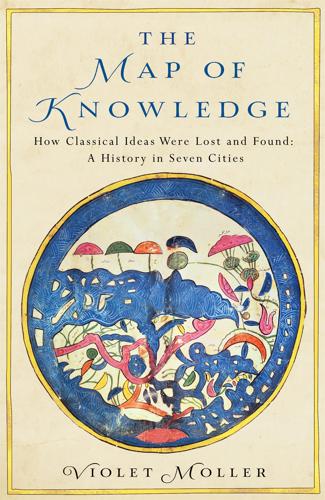
The Map of Knowledge: How Classical Ideas Were Lost and Found: A History in Seven Cities
by
Violet Moller
Published 21 Feb 2019
It is plausible that al-Jabali brought innovations and practices back with him from Egypt and Basra. * Its splendid full title is The Arrangement of Medical Knowledge for One who is Not Able to Compile a Book for Himself. * Later physicians were in awe of Zahrawi’s genius; some ranked him alongside Hippocrates and Galen for his contribution to medical science. * The setting for Umberto Eco’s classic novel, The Name of the Rose, a murder mystery which explores the intellectual world of a fourteenth-century monastery. * A copy of this text, in the version revised by Maslama al-Majriti, with the coordinates adapted to Córdoba, was brought to Zaragoza sometime in the mid eleventh century, where the tables were recomputed to the local latitude
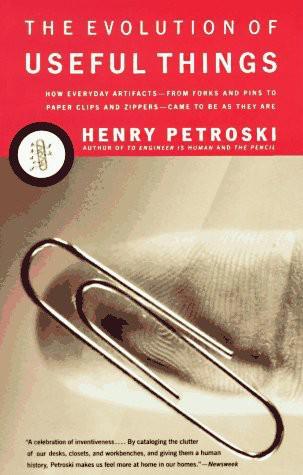
The Evolution of Useful Things
by
Henry Petroski
Published 2 Jan 1992
Exploring the tableware that we use every day, and yet know so little about, provides as good a starting point for a consideration of the interrelated natures of invention, innovation, design, and engineering as we are likely to find. Some writers have been quite unequivocal about the origins of things. In their Picture History of Inventions, Umberto Eco and G. B. Zorzoli state flatly that “all the tools we use today are based on things made in the dawn of prehistory.” And in his Evolution of Technology, George Basalla posits as fundamental that “any new thing that appears in the made world is based on some object already there.” Such assertions appear to be borne out in the case of eating utensils.
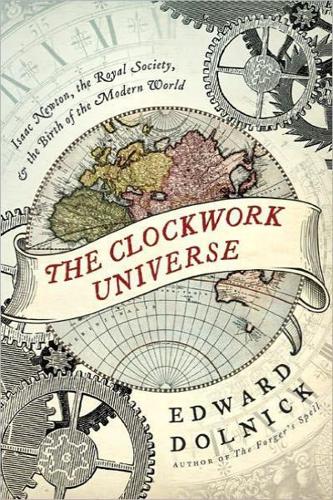
The Clockwork Universe: Saac Newto, Royal Society, and the Birth of the Modern WorldI
by
Edward Dolnick
Published 8 Feb 2011
See http://www.leibniz-translations.com/dog.htm, “Account of a Letter from Mr. Leibniz to the Abbé de St. Pierre, on a Talking Dog.” 237 “a museum of everything”: Wiener, “Leibniz’s Project.” 238 “I have so much that is new”: Stewart, The Courtier and the Heretic, p. 256. 238 “If controversies were to arise”: Umberto Eco, The Search for the Perfect Language, p. 281. (See Chapter 14, “From Leibniz to the Encyclopédie.”) 238 Today a diligent team: Author interview with Lawrencc Carlin, philosophy department at the University of Wisconsin at Oshkosh, July 15, 2008. 238 “Leibniz was one of the supreme”: Russell, History of Western Philosophy, p. 581. 239fn Unbeknownst to Leibniz: Harriot’s work on the telescope is discussed by Albert Van Helden in his “Introduction” to Galileo’s Sidereal Messenger, p. 9, and his mathematical work is discussed in the online journal Plus.
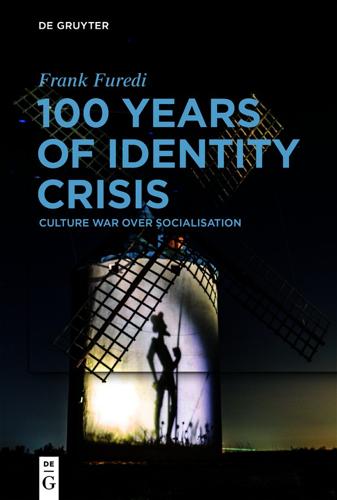
100 Years of Identity Crisis: Culture War Over Socialisation
by
Frank Furedi
Published 6 Sep 2021
At this point there was not yet talk of a mental health crisis among children, post-traumatic stress disorder was not used in everyday conversation and the explosion of psychiatric diagnostic categories had not yet occurred. A lot more was at stake than the influence of a psychologically informed sensibility. The Marxist historian Eric Hobsbawm described it as a ‘cultural revolution’.665 Decades later, the Italian writer and philosopher Umberto Eco recalled that ‘even though all visible traces of 1968 are gone, it profoundly changed the way all of us, at least in Europe, behave and relate to one another’. He added that ‘relations between bosses and workers, students and teachers, even children and parents, have opened up’ and therefore ‘they’ll never be the same again’.666 Eco’s focus on the transformative impact of cultural change on the conduct of human relationships captured the essence of the events of 1968.
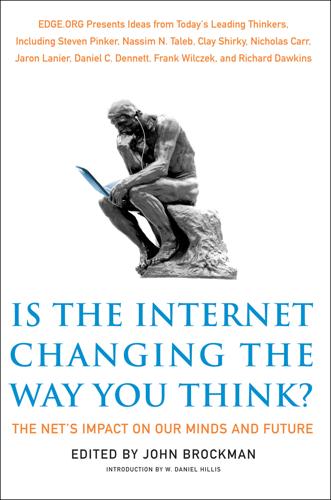
Is the Internet Changing the Way You Think?: The Net's Impact on Our Minds and Future
by
John Brockman
Published 18 Jan 2011
These conversations freed me up—freed my thoughts as to what curating could be and how curating can produce reality. The arrival of the Internet was a trigger for me to think more in the form of Oulipian lists—practical-poetical, evolutive, and often nonlinear lists. This A to Z, as you’ll see, is an incomplete list . . . Umberto Eco calls the World Wide Web the “mother of all lists,” infinite by definition and in constant evolution. C is for Curating the World The Internet made me think toward a more expanded notion of curating. Stemming from the Latin curare, the word curating originally meant “to take care of objects in museums.”
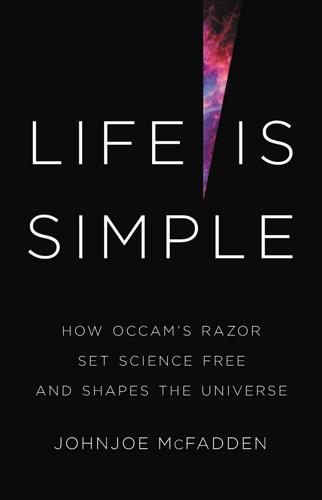
Life Is Simple: How Occam's Razor Set Science Free and Shapes the Universe
by
Johnjoe McFadden
Published 27 Sep 2021
Occam’s nominalist notion of subjective rights also went on to influence key figures of the political Enlightenment, such as Hugo Grotius the Dutch humanist, poet, playwright and lawyer,14 and through them Thomas Hobbes, George Berkeley and the nineteenth-century materialists who, like Occam, insisted that the right to property or to rule is a human invention. As Karl Marx noted, ‘Nominalism was one of the principal elements of English materialism, and in general is the first expression of materialism.’15 Footnotes i The phrase identified the hunchback Salvatore in The Name of the Rose, written by Umberto Eco, as a former member of the Dulcinites. ii The successor of Charlemagne who had been crowned Emperor in 814 by the Pope. In late medieval times the title was held by a monarch elected by a committee of Prince-Electors. The empire ruled mostly over the German-speaking people but it waxed and waned over the years to encompass other lands, such as Italy.
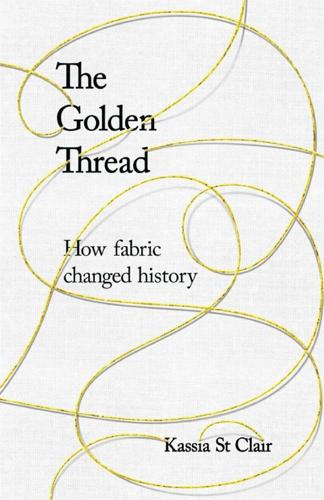
The Golden Thread: How Fabric Changed History
by
Kassia St Clair
Published 3 Oct 2018
Transmuting cotton into usable fabric is also wasteful: a single pair of jeans requires 11,000 litres of water. Moreover, the majority of indigo used is now synthetic: chemicals used and released during manufacturing and dyeing often end up in rivers and streams.51 In his 1976 essay ‘Lumbar Thought’, the Italian philosopher Umberto Eco argued that the modern obsession with denim was limiting, rather than freeing. He found that the fitted shape of his jeans, and the way they constricted his movement, changed the way he carried himself. ‘As a rule I am boisterous, I sprawl in a chair, I slump wherever I please, with no claim to elegance: My blue jeans checked these actions, made me more polite and mature.
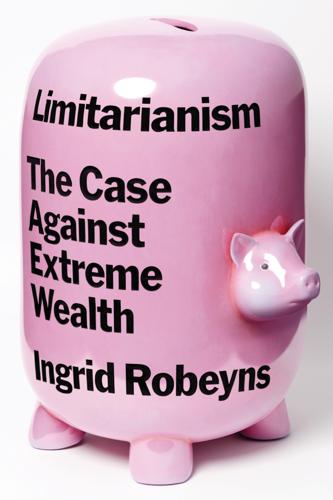
Limitarianism: The Case Against Extreme Wealth
by
Ingrid Robeyns
Published 16 Jan 2024
On the Dominion settlement, see Dominic Folkenflik and Mary Yang, “Fox News Settles Blockbuster Defamation Lawsuit with Dominion Voting Systems,” NPR, April 18, 2023, npr.org/2023/04/18/1170339114/fox-news-settles-blockbuster-defamation-lawsuit-with-dominion-voting-systems, and Susan B. Glasser, Jane Mayer, and Evan Osnos for commentary: newyorker.com/podcast/political-scene/with-the-fox-dominion-settlement-were-still-at-the-mercy-of-a-billionaire-dynasty. 22. Umberto Eco, “Ur-Fascism,” New York Review of Books, June 22, 1995, nybooks.com/articles/1995/06/22/ur-fascism/. See also Jason Stanley, How Propaganda Works (Princeton, NJ: Princeton University Press, 2016). 23. Jane Mayer, “Covert Operations: The Billionaire Brothers Who Are Waging a War against Obama,” New Yorker, August 30, 2010; Theda Skocpol and Alexander Hertel-Fernandez, “The Koch Network and Republican Party Extremism,” Perspectives on Politics 14:3 (2016), pp. 681–99; and Hägel, Billionaires in World Politics, pp. 155–70. 24.

Jennifer Morgue
by
Stross, Charles
Published 12 Jan 2006
Not only do few novels survive their author's demise, even fewer acquire sequels written by other hands; yet several other authors (including Kingsley Amis and John Gardner) have toiled in Fleming's vineyard. Few fictional characters acquire biographies written by third parties — but Bond has not only acquired an autobiography (courtesy of biographer John Pearson) but spawned a small cultural industry, including a study of his semiotics by Umberto Eco. Now, that has got to be a sign of something ... As with every true pearl, there was a sand-grain of truth at the heart of Bond. Fleming wrote thrillers informed by his actual experience. Years spent working out of the hothouse environment of Room 39 of the Admiralty building — headquarters of the Naval Intelligence Division of the Royal Navy — gave him a ringside seat on the operations of a major espionage organization.
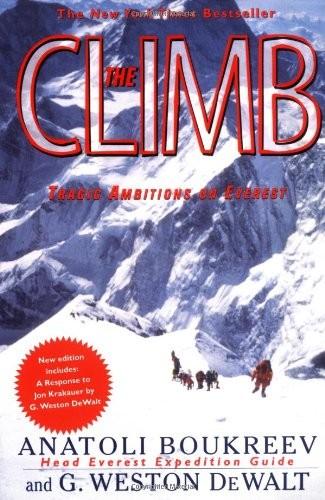
The Climb: Tragic Ambitions on Everest
by
Anatoli Boukreev
Published 16 Jul 1999
I had promised Anatoli that I would do what needed to be done if one day he did not come home. A response, I thought, was necessary. A RESPONSE “I believe that there are at least intersubjective criteria to tell if an interpretation is a bad one, in the very sense in which we are sure that … Marco Polo did not really see unicorns.” —UMBERTO ECO, Serendipities: Language and Lunacy The Boukreev-Krakauer controversy began with the publication of Krakauer’s article “Into Thin Air,” which appeared in the September 1996 issue of Outside.* In that article Krakauer criticized Boukreev’s descent ahead of clients on summit day: “Boukreev had returned to Camp Four at 4:30 P.M., before the brunt of the storm, having rushed down from the summit without waiting for clients—extremely questionable behavior for a guide.”
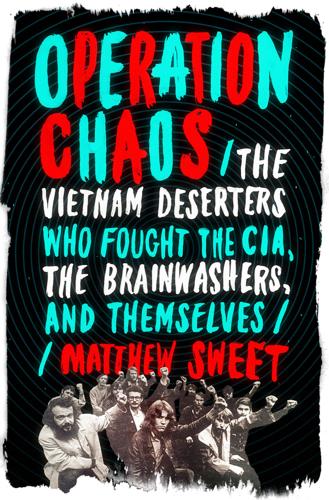
Operation Chaos: The Vietnam Deserters Who Fought the CIA, the Brainwashers, and Themselves
by
Matthew Sweet
Published 13 Feb 2018
What I don’t understand on a personal level is why all those people stayed around him. Wally Hamerman. Bill Jones. Cliff Gaddy. They were my group.” To me, the answer was simple. Michael had answered it himself. They were his group. He had stripped them of their egos and, unwittingly, prepared them for servitude to another charismatic leader. 11 / BEYOND PSYCHOANALYSIS UMBERTO ECO’S NOVEL Foucault’s Pendulum is the story of a group of literary men who invent a conspiracy theory. “The Plan” is an incomprehensibly complex plot in which a huge number of interested parties—the Masons, the Nazis, the Jesuits, the Rosicrucians, and practitioners of Brazilian voodoo—are all working to harness a mysterious force called telluric energy, through which they hope to transform the world.
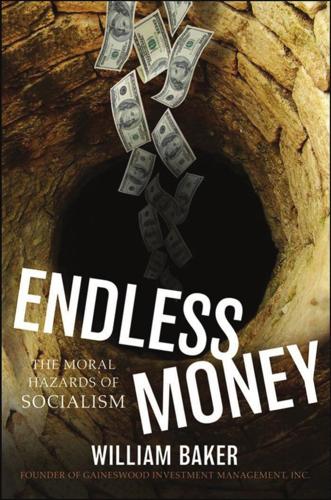
Endless Money: The Moral Hazards of Socialism
by
William Baker
and
Addison Wiggin
Published 2 Nov 2009
Donald Rumsfeld, statement from Defense Department briefing, 200210 In his bestseller, The Black Swan, the financial commentator Nassim Taleb claims that investors and economists err in understanding the direction of markets because they underestimate what they do not know, a concept he names “tunneling.” (Before the sighting of a black swan in Australia, all swans were believed to be white.) Taleb tells the story of visitors to the medievalist and philosopher Umberto Eco’s library of 30,000 books: Most compliment his knowledge by asking in amazement how many has he read; others understand that his wisdom comes from his habit of turning to the large number of unread books at his disposal for reference. When results come in outside the bounds of their forecasted outcomes, experts claim they were correct “except for certain unforeseeable influences.”
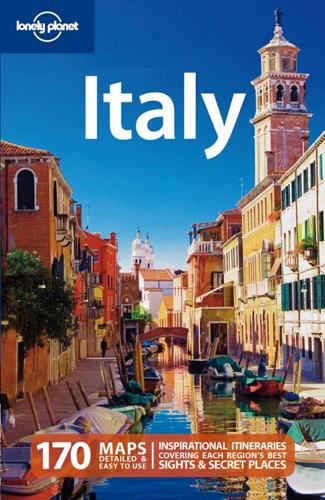
Italy
by
Damien Simonis
Published 31 Jul 2010
Cristo si è Fermato a Eboli (Christ Stopped at Eboli; 1947) Carlo Levi Il Gattopardo (The Leopard; 1958) Giuseppe Tomasi di Lampedusa I Promessi Sposi (The Betrothed; 1827) Alessandro Manzoni Il Barone Rampante (The Baron in the Trees; 1957) Italo Calvino Il Nome della Rosa (The Name of the Rose; 1980) Umberto Eco Il Giorno della Civetta (The Day of the Owl; 1961) Leonardo Sciascia La Storia (History; 1974) Elsa Morante Se Questo è Un Uomo (If This Is a Man; 1947) Primo Levi Il Ladro di Merendine (The Snack Thief; 2000) by Andrea Camilleri Gomorra (Gomorrah; 2006) by Roberto Saviano TOP STARS OF ITALIAN MUSIC Italian pop and rock musicians have a loyal following and music radio stations play their latest singles day and night.
…
Sunny Sicily is also the scene of the crime in Leonardo Sciascia’s Il giorno della civetta (The Day of the Owl), where a visiting police inspector from Parma witnesses a killing only to be told in no uncertain terms that the murder didn’t happen, the Sicilian Mafia doesn’t exist, and he’d be better off in Parma. Umberto Eco brought intellectual weight to the genre with Il nome della rosa (The Name of the Rose) and Il pendolo di Foucault (Foucault’s Pendulum) — not to mention sheer bulk, at 600-plus pages of arcane detail and plot twists. * * * COMICS: NOT JUST FOR BAMBINI ANY MORE You might be surprised to notice spiffy suited businessmen on trains thumbing through some familiar fumetti (comics).
…
Journey time is 30 to 55 minutes to/from Turin (€3.90), and 1¾ hours to/from Genoa (€6.50), stopping at Alba (€2.70, 40 minutes). Around Asti Vineyards fan out around Asti, interspersed with castles and celebrated restaurants. Buses run from Asti to many of the villages; Asti’s tourist offices can provide schedules. MONFERRATO A land of literary giants (contemporary novelist Umberto Eco and 18th-century dramatist Vittorio Alfieri hail from here) and yet another classic wine (the intense Barbera del Monferrato), the Monferrato area occupies a fertile triangle of terrain between Asti, Alessandria and its historic capital, Casale Monferrato (population 38,500). The tiny hamlet of Moncalvo (population 3320), 15km north of Asti along the S457, makes a perfect photo stop, with a lookout above its castle, where you’ll also find an information office (Piazza Antico Castello; Sat & Sun, specific hr vary) and wine tasting.
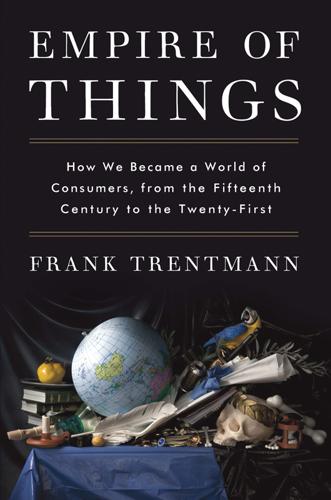
Empire of Things: How We Became a World of Consumers, From the Fifteenth Century to the Twenty-First
by
Frank Trentmann
Published 1 Dec 2015
By 1959, serious artists like Vittorio Gassman and Anna Maria Ferrero were appearing in a promotional sketch for Baci chocolates on the Italian show Carosello, mocking precisely such high cultural pretensions.135 Older critics such as Marcuse (born 1898), Adorno (1903) and Galbraith (1908), were overtaken by a new generation of public intellectuals who adopted a more balanced tone towards the world of goods. In 1964, Umberto Eco (born in 1932) came to the defence of mass culture. All of us might read Ezra Pound’s poetry at one moment and pulp fiction the next. Sometimes, Eco wrote, mass culture diffused ready-made emotions and aided conformism, but at others it opened up social questions. It satisfied a genuine need for entertainment.
…
Kaspar Maase, ‘Establishing Cultural Democracy: Youth, “Americanization” and the Irresistible Rise of Popular Culture’, in: Richard Bessel & Dirk Schumann, eds., Life after Death (Cambridge, 2003), 428–50. 133. Rowntree & Lavers, English Life and Leisure, 383f. 134. Thomas Frank, The Conquest of Cool: Business Culture, Counterculture and the Rise of Hip Consumerism (Chicago, 1997), 189–97. 135. Guia Croce, ed., Tutto il meglio di Carosello, 1957–77 (Turin, 2011). 136. Umberto Eco, Apocalittici e integrati (Milan, 1964/1988), 29–64. 137. Ernest Dichter, The Strategy of Desire (New York, 1960), 18, 90, 169, 263. Compare Horowitz, Anxieties of Affluence, ch. 2; David Bennett, ‘Getting the Id to go Shopping’, in: Public Culture 17, no. 1, 2005: 1–26; and Stefan Schwarzkopf & Rainer Gries, eds., Ernest Dichter and Motivation Research (Basingstoke, 2010). 138.
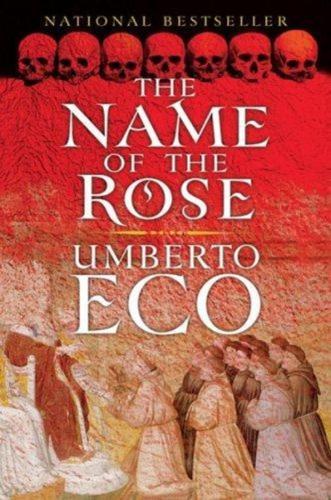
The Name of the Rose
by
Umberto Eco
Published 26 Sep 2006
THE NAME OF THE ROSE UMBERTO ECO Translated from the Italian by William Weaver TABLE OF CONTENTS PREFACE NOTE PROLOGUE FIRST DAY PRIME TERCE SEXT TOWARD NONES AFTER NONES VESPERS COMPLINE SECOND DAY MATINS PRIME TERCE SEXT NONES AFTER VESPERS COMPLINE NIGHT THIRD DAY FROM LAUDS TO PRIME TERCE SEXT NONES VESPERS AFTER COMPLINE NIGHT FOURTH DAY LAUDS PRIME TERCE SEXT NONES VESPERS COMPLINE AFTER COMPLINE NIGHT FIFTH DAY PRIME TERCE SEXT NONES VESPERS COMPLINE SIXTH DAY MATINS LAUDS PRIME TERCE AFTER TERCE SEXT NONES BETWEEN VESPERS AND COMPLINE AFTER COMPLINE SEVENTH DAY NIGHT NIGHT LAST PAGE PREFACE ON AUGUST 16, 1968, I WAS HANDED A BOOK WRITTEN by a certain Abbé Vallet, Le Manuscrit de Dom Adson de Melk, traduit en français d’après l’édition de Dom J.
…
Eco’s novel reads like Arthur Conan Doyle and Thomas Mann combined forces. Once you begin it, you will certainly finish it.” —Greensboro News “BOTH AN ENTERTAINING DETECTIVE STORY AND A TOUR-DE-FORCE OF MEDIEVAL SCHOLARSHIP ... BOTH AN ENTERTAINING PUZZLE AND A RICHLY DETAILED PORTRAIT OF ANOTHER WORLD.” —Grand Rapids Press THE NAME OF THE ROSE UMBERTO ECO Translated from the Italian by William Weaver A Warner Communications Company WARNER BOOKS EDITION Copyright © 1980 by Gruppo Editoriale Fabbri-Bompiani, Sonzogno, Etas S.p.A . English translation copyright © 1983 by Harcourt Brace Jovanovich, Inc. and Martin Secker & Warburg Limited.
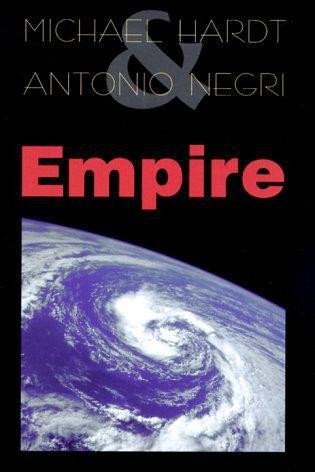
Empire
by
Michael Hardt
and
Antonio Negri
Published 9 Mar 2000
Robert Reich, The Work of Nations (New York: Random House, 1992), pp. 8 and 3. 19. See Arjun Appadurai, ‘‘Disjuncture and Difference in the Global Cultural Economy,’’ in Modernity at Large (Minneapolis: University ofMinnesota Press, 1996), pp. 27–47. 20. See, for example, Jean Baudrillard, Selected Writings, ed. Mark Poster (Oxford: Blackwell, 1988); and Umberto Eco, Travels in Hyper-reality, trans. William Weaver (London: Picador, 1986), pp. 3–58. 21. Stephen Brown, Postmodern Marketing (London: Routledge, 1995), p. 157. Whereas marketing practice is postmodernist, Brown points out, market- ing theory remains stubbornly ‘‘modernist’’ (which here means positivis- tic).
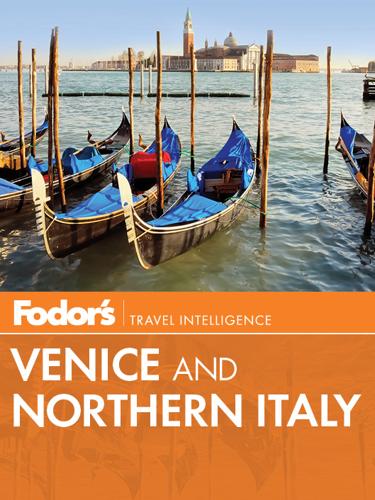
Fodor's Venice and Northern Italy
by
Fodor's
Published 22 Mar 2011
Getting Here Unless you want to do a 14-km (9-mi) hike from the town of Avigliana, a car is essential for an excursion to the Abbey of Saint Michael—take the Avigliana Est exit from the Torino–Bardonecchia highway (A32). Exploring Sacra di San Michele Perhaps best known as inspiration for the setting of Umberto Eco’s novel The Name of the Rose, Sacra di San Michele was built on Monte Pirchiriano in the 11th century so it would stand out: it occupies the most prominent location for miles around, hanging over a 3,280-foot bluff. When monks came to enlarge the abbey they had to build part of the structure on supports more than 90 feet high—an engineering feat that was famous in medieval Europe and is still impressive today.
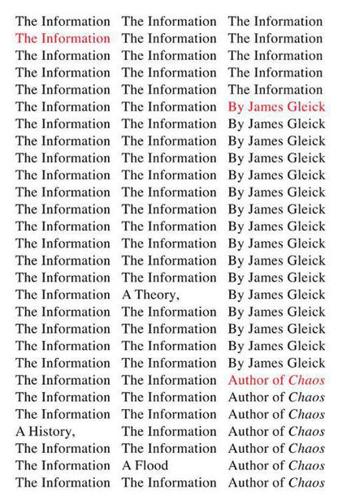
The Information: A History, a Theory, a Flood
by
James Gleick
Published 1 Mar 2011
.: Coda Press, 1980), 3. ♦ “I IMAGINE … THAT THE ENTRIES OF THE DICTIONARY”: Dexter Palmer, The Dream of Perpetual Motion (New York: St. Martin’s Press, 2010), 220. ♦ “ALL HUMAN THOUGHTS MIGHT BE ENTIRELY RESOLVABLE”: Gottfried Wilhelm Leibniz, De scientia universali seu calculo philosophico, 1875; cf. Umberto Eco, The Search for the Perfect Language, trans. James Fentress (Malden, Mass.: Blackwell, 1995), 281. ♦ “IS IT SIGNALING, LIKE TELEGRAPHS?”: Margaret Atwood, “Atwood in the Twittersphere,” The New York Review of Books blog, http://www.nybooks.com/blogs/nyrblog/2010/mar/29/atwood-in-the-twittersphere/, 29 March 2010

The Rough Guide to Jerusalem
by
Daniel Jacobs
Published 10 Jan 2000
What makes it worth a try, if you can persuade them that you are an artist, a scholar or a VIP, is that the rooms are in Moses Montefiore’s original Yemin Moshe almshouses (see p.137), and offer great views of the Old City as well as the pleasure of staying in a historic milieu. Guests here have included Simone de Beauvoir, Umberto Eco, the Dalai Lama, Saul Bellow and Herman Wouk. Breakfast included 7 Montefiore 7 Shatz T02/622 1111, Wwww .montefiorehotel.com. A three-star hotel that makes a good mid-range choice, tucked away in a quiet corner of downtown West Jerusalem, its rooms are cosy and well looked after, with TV, a/c and heating, and suites are available.
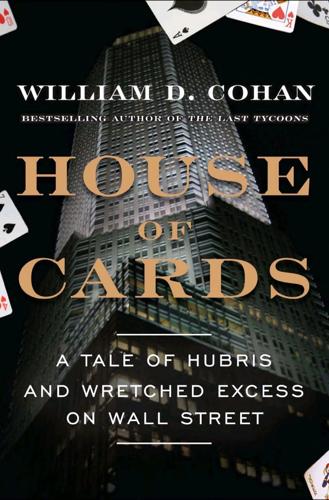
House of Cards: A Tale of Hubris and Wretched Excess on Wall Street
by
William D. Cohan
Published 15 Nov 2009
Observers familiar with Goldman Sachs and Bear Stearns believe the quality of the people at each is similar but that the language of the two firms could not be more different. “The difference between Bear people and Goldman Sachs people was one of vocabulary,” explained one person who knows both firms well. “It's almost like a piece of conceptual art or symbiotics. It was like reading Umberto Eco—language begets culture. At Goldman Sachs, the language is very specifically less aggressive and less hostile. So as an example, if a salesman and trader are talking about how they did a trade with a customer and they think there's a significant business opportunity that came out of that trade, at Bear Stearns they might say, ‘I just ripped that fucker's head off.
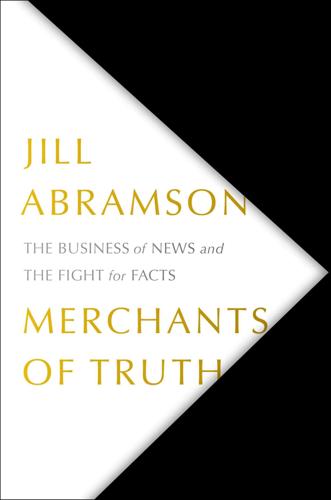
Merchants of Truth: The Business of News and the Fight for Facts
by
Jill Abramson
Published 5 Feb 2019
Having itemized and indexed internet users’ fears and desires, their self-image, aspirations, and guilty pleasures, BuzzFeed now had to feed that material back to them. The packaging was shiny, if unsubtle. In a frenetic social environment, the list appealed for its brevity. It achieved the ends the culture wanted, according to a famous quote by the novelist Umberto Eco: “To make infinity comprehensible . . . [and] create order.” The form allowed any topic to be rendered as an entirely visual experience—a vertically arranged slideshow—that was all the more conveniently digestible for being postliterate. Social media users were getting used to scrolling briskly through their friends’ posts.

USA's Best Trips
by
Sara Benson
Published 23 May 2010
The center of town is the Triangle’s version of the village green, the lawn at Weaver Street Market, which now has an “Open Space Policy” to make sure dancing alone (and, um, shirtless, with no music) isn’t a crime. During the day, wi-fi users and fans of the organic salad bar and hot bar congregate at picnic tables to nosh, read Umberto Eco novels or discuss the nearby biodiesel fuel pumping station. Events run throughout the week, including Sunday morning jazz concerts, Thursday evening After Hours concerts, and Friday night wine tastings. Hula-hoop clinics pick up during the summer. For a more rocking evening at one of the South’s most venerable venues for eclectic music, check out Cat’s Cradle.
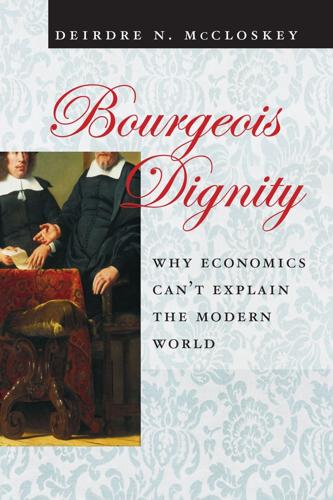
Bourgeois Dignity: Why Economics Can't Explain the Modern World
by
Deirdre N. McCloskey
Published 15 Nov 2011
“Property Rights, Competition, and Depletion in the Eighteenth-Century Canadian Fur Trade: The Role of the European Market.” Canadian Journal of Economics/Revue canadienne d’Economique 32:705–728. Carlyle, Thomas. 1843 (1899). Past and Present. London: Chapman and Hall. Carrièrre, Jean-Claude, and Umberto Eco. 2011. This Is Not the End of the Book. London: Harvill Secker. Casey, Gerard. 2006. “Scholastic Economics.” Yearbook of the Irish Philosophical Society. Pp. 70–83. Castiglione, Baldasarre. 1528 (1901). Il Libro del Cortegiano (The Book of the Courtier). Trans. and ed. L. E. Opdyke. New York: Liveright.
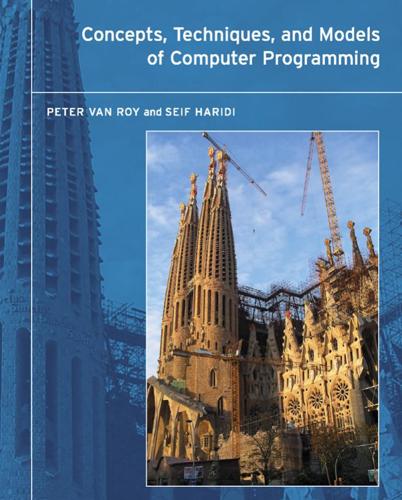
Concepts, Techniques, and Models of Computer Programming
by
Peter Van-Roy
and
Seif Haridi
Published 15 Feb 2004
If you feed a statement that should display a result and nothing is displayed, then the probable cause of 90 Declarative Computation Model the problem is a blocked operation. Carefully check all operations to make sure that their arguments are bound. Ideally, the system’s debugger should detect when a program has blocked operations that cannot continue. 2.7 Exceptions First let us find the rule, then we will try to explain the exceptions. – The Name of the Rose, Umberto Eco (1932–) How do we handle exceptional situations within a program? For example, dividing by zero, opening a nonexistent file, or selecting a nonexistent field of a record? These operations do not occur in a correct program, so they should not encumber normal programming style. On the other hand, they do occur sometimes.